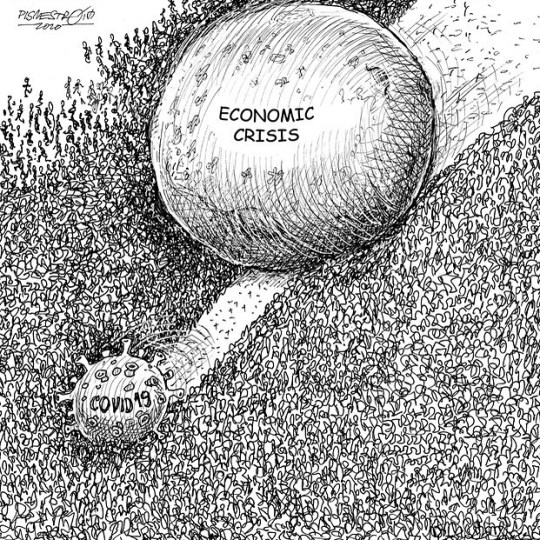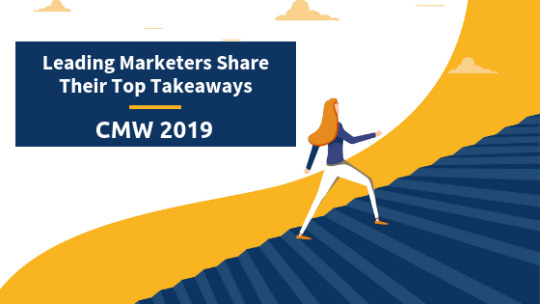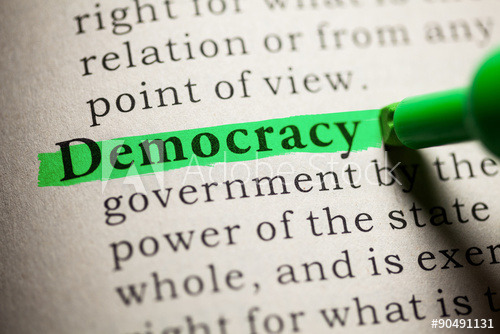#but....a world where humans are not only expected to do Nothing but basically government-mandated to bc computers can do it better
Explore tagged Tumblr posts
Text
Biting the Sun was definitely the right choice to read right now. I've been despairing lately over how AI are going to eventually take over my industry and my entire professional life will have been for naught and all my employable skills will become useless, so reading about a world where one person is depressed by the endless pointless "delights" of a "utopia" where humans not only aren't needed to work but aren't capable of much work because there's always a robot or a computer that does it better, and is seeking a meaningful existence where they are allowed to contribute to society, is really hitting home.
#also the concept that you pay not by money but by sobbing and prostrating yourself in gratefulness to essentially the government#and/or corporations is....oof#idk i just think it's important to the human Condition that we are all able to contribute somehow#obvs that means something different to each person and people shouldn't be forced into backbreaking work just to survive#but....a world where humans are not only expected to do Nothing but basically government-mandated to bc computers can do it better#is pretty dystopian#also this book is like the Uglies on acid it's fantastic#thinking about reading#biting the sun#tanith lee
15 notes
·
View notes
Text
Story at-a-glance
In the spring of 2021, the Biden Administration said it was seriously looking into establishing a vaccine passport system that will allow unvaccinated individuals to be legally treated as second-class citizens
In Israel, vaccine certificates are already required for entry into many public spaces. Activists warn it’s become a two-tiered society where the unvaccinated are ostracized
The public narrative is not only building prejudice against people who refuse to wear masks or get an experimental vaccine, but is also using healthy people as scapegoats from the very beginning, blaming the spread of the virus on asymptomatically infected people
With the rollout of vaccine certificates, we are stepping firmly into discrimination territory. The last step will entail persecution of non-vaccinated individuals. At that point, we will have replicated the Nazi regime’s four-step process of dehumanizing the Jews, which ultimately allowed the genocide to occur
Vaccine passports are about creating justification for segregation, discrimination and elimination of certain groups of people, in this case, people who don’t want to be part of the experimental vaccine program, which identifies them as noncompliant with top-down edicts
This article was previously published on April 6, 2021 and has been updated with new information.
As predicted in 2020, vaccine passports are being rolled out across the world, including the U.S. As reported by Ron Paul in his Liberty Report,1,2 which streamed live March 29, 2021, the Biden Administration said it was "seriously looking into establishing some kind of federal vaccine passport system, where Americans who cannot (or will not) prove to the government they have been jabbed with the experimental vaccine will be legally treated as second-class citizens."
While Biden has yet to formally announce such a program, Paul warns that if it happens, this system "will quickly morph into a copy of China's 'social credit' system, where undesirable behaviors are severely punished." I've been saying the same thing for many months now, and there's every reason to suspect that this is indeed where we're headed.
Indeed, listen to Ilana Rachel Daniel's emotional plea from Jerusalem, Israel, where a "Green Pass" is now required if you want to enter any number of public venues and participate in society. Daniel, who emigrated from the U.S. to Israel 25 years ago, is a health adviser, activist and information officer for a new political human rights party called Rappeh.
The COVID-19 data simply don't support the rollout of this kind of draconian measure. In the absence of a serious, truly massively lethal threat to a major portion of U.S. citizens, having to show vaccine papers in order to travel and enter certain social venues is clearly more about imposing top-down government control than safeguarding public health.
We're Looking at the End of Human Liberty in the West
Mandatory vaccine passports will be massively discriminating, and are quite frankly senseless, considering the so-called COVID-19 "vaccines" don't work like vaccines.
They're designed to lessen symptoms when the inoculated person gets infected, but they do not actually prevent them from getting infected in the first place, and they don't prevent the spread of the virus — which is being proven by the number of fully vaccinated people who not only are coming down with the Delta variant of COVID, but are being told they can spread it to others.
With statistics like this, vaccine passports are nothing but loyalty cards, proving you've submitted to being a lab rat for an experimental injection and nothing more, because in reality, vaccinated individuals are no safer than unvaccinated ones. It's a truly mindboggling ruse, and unless enough people are able to see it for what it is, the world will rather literally be turned into a prison planet.
In Israel … we're hearing from activists that it's a two-tiered society and that basically, activists are ostracized and surveilled continually. It is the end of civil society, and they are trying to roll it out around the world. ~ Naomi Wolf
As noted by former Clinton adviser and author Naomi Wolf, mandatory COVID-19 passports would spell the "end of human liberty in the West." In a March 28, 2021, interview with Fox News' Steve Hilton, she said:3,4
"'Vaccine passport' sounds like a fine thing if you don't understand what those platforms can do. I'm [the] CEO of a tech company, I understand what these platforms can do. It is not about the vaccine, it's not about the virus, it's about your data.
Once this rolls out, you don't have a choice about being part of the system. What people have to understand is that any other functionality can be loaded onto that platform with no problem at all. It can be merged with your Paypal account, with your digital currency. Microsoft is already talking about merging it with payment plans.
Your network can be sucked up. It geolocates you everywhere you go. You credit history can be included. All of your medical and health history can be included.
This has already happened in Israel, and six months later, we're hearing from activists that it's a two-tiered society and that basically, activists are ostracized and surveilled continually. It is the end of civil society, and they are trying to roll it out around the world.
It is absolutely so much more than a vaccine pass … I cannot stress enough that it has the power to turn off your life, or to turn on your life, to let you engage in society or be marginalized."
Largest Medical Experiment in the History of the World
As noted by Donald Rucker, who led the Trump Administration's health IT office, the individual tracking that goes along with a vaccine passport will also help officials to evaluate the effectiveness and long-term safety of the vaccines. He told The Washington Post:5
"The tracking of vaccinations is not just simply for vaccine passports. The tracking of vaccinations is a broader issue of 'we're giving a novel biologic agent to the entire country,' more or less."
In other words, health officials know full well that this mass vaccination campaign is a roll of the dice. It's the largest medical experiment in the history of the world, and vaccine certificates will allow them to track all of the millions of test subjects. This alone should be cause enough to end all discussions about vaccine mandates, yet the experimental nature of these injections is being completely ignored.
Again, by shaming people who have concerns about participating in a medical experiment and threatening to bar them from society, government officials are proving that this is not for the greater good. It's not about public health. It's about creating loyal subjects — people who are literally willing to sacrifice their lives and the lives of their children at the request of the government, no questions asked.
Vaccinations Are the New 'Purity Test'
Wolf also points out the horrific history of IBM, which developed a similar but less sophisticated system of punch cards that allowed Nazi Germany to create a two-tier society and ultimately facilitated the rounding up of Jews for extermination.
Suffice it to say, some of the most gruesome parts of history are now repeating right before our eyes, and we must not turn away from this ugly truth. Doing so may turn out to be far more lethal than COVID-19 ever was.
The short video above features a 93-year-old Holocaust survivor who compares mask wearing to, as a Jew, having to wear a yellow star to mark their societal status. However, back then, everyone understood what was happening, she says.
At no point were they lied to and told that wearing the star was for their own good, which is what's happening now. So, in that respect, the current situation is far more insidious. She says the "hypocrisy in the public narrative," which claims that we need to wear masks to protect the old, "is absolutely unbearable." "I would love to die in a state [of] freedom," she says, "than live like this."
She adds that at her age, her life expectancy is short, and she would gladly exchange her death for the life and happiness of the next generations. She wants the younger generations to have the freedom "to live their lives, as I have lived mine ... To see people defile their children with masks is something totally unbearable to me," she says. Vaccine credentials, in my view, are even more comparable to the Jewish yellow star, but in reverse.
Not having the certificate will be the yellow star of our day, which will allow business owners, government officials and just about anyone else to treat you like a second-class citizen and deny you access to everything from education, work and travel, to recreation, social engagements and daily commerce — all under the false guise of you being a biological threat to all those who have been vaccinated.
According to the public narrative, vaccine certificates are a key aspect of getting life back to normal, but the reality is the complete converse, as they will usher in a markedly different society that is anything but normal.
Florida Bucks the Trend
As a resident of Florida, I must applaud Gov. Ron DeSantis who announced March 29, 2021,6 that he would issue an executive order forbidding local governments and businesses from requiring vaccine certificates.
He followed up with that order April 2, 2021, saying he was calling on the state legislature to create a measure that will allow him to sign it into law. Unfortunately, U.S. District Judge Kathleen M. Williams issued an injunction August 8, 2021, against enforcing the order; whether DeSantis chooses to fight to keep it is yet to be seen.
"It's completely unacceptable for either the government or the private sector to impose upon you the requirement that you show proof of vaccine to just simply participate in normal society," he said at the time he announced the order.
But, no matter what comes of DeSantis' order, other states and countries that do decide on such a requirement are also bound to face the problem of black market vaccination certificates, which have already started emerging.7,8
As reported by the Daily Beast,9,10 a number of health care workers have been caught bragging about forging vaccination cards on their social media channels. Apparently, they have not yet realized the public nature of the internet, but that's beside the point.
In Florida, a man working at a web design company was fired after posting a TikTok video advertising fake vaccine cards,11 and in Israel, where the two-tier society is already forming, a man was arrested for making and selling forged COVID-19 vaccination certificates, which are now required for entry into restaurants, bars, clubs, hotels, swimming pools and other public venues throughout the country.12
Around the world, people are also being arrested for administering fake vaccines13,14,15,16,17 and selling bogus COVID-19 tests.18,19
Eugenics and Hygiene Obsessions
While it's often considered bad policy to compare anything to the Nazi regime, the comparisons are growing more readily identifiable by the day, which makes them hard to avoid.
Aside from the parallels that can be drawn between mask wearing and/or vaccine "papers" and the Jewish yellow star, there's the Nazi's four-step process for dehumanizing the Jews,20 — prejudice, scapegoating, discrimination and persecution — a process that indoctrinated the German people into agreeing with, or at least going along with the plan to commit genocide.
In present day, the public narrative is not only building prejudice against people who refuse to wear masks or get an experimental vaccine, but is also using healthy people as scapegoats from the very beginning, blaming the spread of the virus on asymptomatically infected people.
With the rollout of vaccine certificates, we are stepping firmly into discrimination territory. The last step will entail persecution of non-vaccinated individuals. This in and of itself also harkens back to the Nazi regime, which was obsessed with "health guidelines" that eventually led to the mass-purging of "unclean" Jews. As reported by Gina Florio in a December 2020 Evie Magazine article:21
"When Hitler first came to power in Nazi Germany, he kicked off a series of public health schemes. He started by setting up health screenings all over the country, sending vans around to every neighborhood to conduct tuberculosis testing, etc.
Next up was factory cleanliness — he launched a robust campaign encouraging factories to completely revamp their space, thoroughly clean every corner … After the factories, the next mission was cleaning up the asylums …
What started as seemingly innocent or well-meaning public health campaigns quickly spiraled into an extermination of races and groups of people who were considered dirty or disgusting. In short, the beginning of Hitler's reign was a constant expansion of who was contaminated and who was impure …
We're seeing an obsession with covering our faces all the time so we don't spread disease or deadly germs; most public places we walk into won't even allow us to enter without slathering our hands in hand sanitizer; and people act terrified of someone who isn't wearing a mask.
Nobody can say with a straight face that this is normal behavior … We're even seeing people advocate for some kind of tracking device to show that a person is vaccinated or 'clean' enough to enter a venue … Let's hope we can all learn the lessons from the past and we don't witness history repeat itself."
History Is Repeating Itself
Indeed, everyone calling for vaccine certificates — which became part of the public narrative early on in the pandemic — is guilty of following in the well-worn footsteps of this infamous dictator, repeating the very same patterns that were universally condemned after the fall of the Third Reich.
Highlighting them all would be too great a task for one article, so two glaring examples will have to suffice. In December 2020, Andrew Yang, an entrepreneurial attorney with political ambitions, tweeted the following:22
"Is there a way for someone to easily show that they have been vaccinated — like a bar code they can download to their phone? There ought to be … Tough to have mass gatherings like concerts or ballgames without either mass adoption of the vaccine or a means of signaling."
Signaling what, if not your "unclean" biohazard state? In his March 2021 Tweet, law professor, political commentator and former U.S. attorney for the Western District of Pennsylvania, Harry Litman, was more direct about the ill intent behind vaccine certificates, saying:23
"Vaccine passports are a good idea. Among other things, it will single out the still large contingent of people who refuse vaccines, who will be foreclosed from doing a lot of things their peers can do. That should help break the resistance down."
Comments like these demonstrate that vaccine passports are about creating justification for segregation, discrimination and elimination of certain groups of people, in this case, people who don't want to be part of the experimental vaccine program.
The justification is that they're too "unclean," too "unsafe" to freely participate in public society and must therefore be identified and shut out. In reality, it's really about identifying the noncompliant.
During the Nazi reign, those slated for segregation, discrimination and elimination were identified by their affiliation with Judaism (there's controversy as to whether Jewishness is an issue of race, ethnicity, religion, national identity or familial bonds, which you can learn more about on JewInTheCity.com,24 but all were relevant criteria in the Nazi's hunt for Jews).
Today, the global elimination strategy foregoes such identities, and focuses instead on identifying who will go along with the program and who will be a noncompliant troublemaker.
In short, vaccine passports are a device to identify who the loyal subjects of the unelected elite are, and who aren't. Those unwilling to enter the new world of technocratic rule without a fuss are the ones that need to be eliminated, and willingness to be a test subject for an unproven experimental treatment is the litmus test. It's really not more complicated than that.
Are You Ready To Be an Outcast?
This is essentially the conclusion drawn by Mike Whitney as well, detailed in an article25 posted on The Unz Review. I would encourage you to read the entire article as it succinctly summarizes the reasons behind the current censorship.
In his article, he points out that behavioral psychologists have been employed by the government to promote the COVID-19 vaccination campaign and maximize vaccine uptake. They also have a "rapid response team" in place to attack the opinions of those who question the "official narrative."
Mike also highlights a National Institutes of Health report26 titled, "COVID-19 Vaccination Communication: Applying Behavioral and Social Science to Address Vaccine Hesitancy and Foster Vaccine Confidence," which lays out the intent to turn vaccine refusers into social outcasts as a tool to coerce compliance.
"This is very scary stuff," Whitney writes.27 "Agents of the state now identify critics of the COVID vaccine as their mortal enemies. How did we get here? And how did we get to the point where the government is targeting people who don't agree with them? This is way beyond Orwell. We have entered some creepy alternate universe …
If behavioral psychologists helped to shape the government's strategy on mass vaccination, then in what other policies were they involved? Were these the 'professionals' who conjured up the pandemic restrictions?
Were the masks, the social distancing and the lockdowns all promoted by 'experts' as a way to undermine normal human relations and inflict the maximum psychological pain on the American people?
Was the intention to create a weak and submissive population that would willingly accept the dismantling of democratic institutions, the dramatic restructuring of the economy, and the imposition of a new political order? These questions need to be answered …
Vaccination looks to be the defining issue of the next few years at least. And those who resist the edicts of the state will increasingly find themselves on the outside; outcasts in their own country."
Will You Obey?
As detailed in an internet blog titled, "Will You Obey the Criminal Authoritarians?" the 1962 Milgram Experiment (embedded above for your convenience), tested the limits of human obedience to authority, proving most people will simply follow orders, even when those orders go against their own sound judgment. They'll commit atrocious acts of violence against others simply because they were told it's OK by an authority figure.
We've already seen examples of this during the past year's mask mandates. Suddenly, people felt empowered to verbally harass, pepper spray and physically attack others simply for not wearing a mask. Families were kicked off planes because their toddlers wouldn't wear a mask. People were even shot for the grievous "crime" of not wearing a mask.
If those things were allowed to happen over mask wearing, one can only imagine what will be tolerated, if not encouraged, when vaccine certificates take full effect. The most obvious answer is to take a firm stand against devolution into inhumanity, regardless of whether you think COVID-19 vaccinations are a good idea or not. The question is, will you? In many ways, the months and years ahead will test the ethics and humanity of every single one of us.
4 notes
·
View notes
Note
☕ I AM totally cooking you up in this ask on how much you know about the Accords and the way they relate to the US's federal law 👀👀👀
Ahhh, yeah, I was due an ask like this. It took a while to get to, so hopefully you eventually see it, md. Note that all regulations are directly from the Wiki, which drew from the canon of Agents of SHIELD, which had huge plot points around the Accords. Possibly the other old Marvel TV shows too, I’m not sure. And without this expansion, we’d know literally nothing about them, but they fit a lot of what was in the comics so I’m cool as accepting them as canon. Your Mileage May Vary.
This is super long so I put it under a cut.
Any enhanced individuals who agree to sign must register with the United Nations and provide biometric data such as fingerprints and DNA samples.
Nothing breaking current US law. You’re expected to get fingerprinted if you do certain things for the state in certain states in the US. For instance, when I took a tutoring job for underprivileged children in my early college years, I was fingerprinted. I wouldn’t be surprised if higher-security jobs also require something similar.
However, to my knowledge these are all state or nationwide databases, not international. There may be some argument to be made about which officials from which country have access to your fingerprints, as it is with the Accords.
In this fictional universe, DNA samples may be more of an issue due to how meta-humans may have altered DNA and we alllll know that of those 117 countries that signed, at least a dozen of them would try to weaponize it in some capacity. If I were a meta-human in the MCU, this would be my largest concern.
Any enhanced individuals who sign are prohibited from taking action in any country other than their own unless they are first given clearance by either that country's government or by a United Nations subcommittee.
This makes complete sense and should have been established long ago. If it wasn’t already established, then the world governments of the MCU are... well, just as slow and dumb as the real world’s.
Any enhanced individuals who do not sign will not be allowed to take part in any police, military, or espionage activities, or to otherwise participate in any national or international conflict, even in their own country.
The UN does not have the authority to dictate what an individual country does or does not allow their population to do, for better or worse. The atrocities carried out across the world by various world governments against their people is the best evidence of that.
That said, in this case, I don’t think it’s any of their business to dictate this. If France wants meta-humans in their police force regardless as to whether they’ve signed the Accords or not, that’s France’s business. If Japan wants to bolster their army with meta-humans who didn’t sign, that’s Japan’s business. The rest of the world may not be happy with that, but the UN is not an elected ruling body and just doesn’t have the authority to make regulations like that. A lot of countries will play nice with sweeping calls such as that and go along with them, but they’re under no obligation to follow them (and certainly not with US law - the UN’s rulings have zero legal ramifications here until they’re passed in state or federal legislatures).
Any enhanced individuals who use their powers to break the law (including those who take part in extralegal vigilante activities), or are otherwise deemed to be a threat to the safety of the general public, may be detained indefinitely without trial.
Hahaahahhahahahahah. No. Breaks the Fifth Amendment in the Bill of Rights, which is a part of the Constitution (which equals the backbone of American law -- things that go to the Supreme Court are there to basically see if something is constitutional or not. It’s a lot more complicated than it sounds, though).
Unfortunately this is a real situation that’s being dealt with now with specific people of the “aiding terrorists” category throughout the last 20 or so years of presidency (both the left and right with politicians signing it, and both the left and right with American activists opposing it, according to my brief study on the issue - you can look up indefinite detention if you want to read more).
Regardless, super super breaks the Fifth Amendment. While the amendments were written for specifically American citizens or folks on American soil, I personally think it’s important it’s a value that is upheld with everyone, no matter what they’ve been accused of. But that’s all I’ll say on that real world topic. This UN mandate hits very close to home - kudos to the writer who put that in for that touch of reality.
The use of technology to bestow individuals with innate superhuman capabilities is strictly regulated, as is the use and distribution of highly advanced technology (such as Asgardian and Chitauri weaponry).
Doesn’t break any known laws to my knowledge. Regulation of dangerous things is pretty common.
The Avengers will no longer be a private organization and will operate under the supervision of the United Nations.
I don’t think the UN has the legal ability to do that. The US government would need to do this as this is a private organization operating within the US on US soil. The US government has acquired private organizations in real life (like GM during the financial crisis of 2008), but they quickly find how much that sucks and sell them off as soon as they can, lol.
Again, the UN is operating under the supposition that they actually have the legal wherewithal to do this when, in reality, they don’t. There is no such thing as international law in the real world and I sincerely doubt in the MCU verse.
What would very likely happen, should Thanos not have ruined this exciting political drama, is that the US totally agrees to do this. Then a new administration or legislature comes in and reverses it 2-6 years later, assuming that all of the lawsuits from various countries didn’t cripple the Accords sooner.
Those with secret identities must reveal their legal names and true identities to the United Nations.
Hahahahaha. Under whose authority? We’ve established there’s no international law. It’d be up to every single individual country to agree to not only do this, but *share* this list with every other country. If I was the decision maker in the US or China, there’s no way in fucking hell I’d do that. Israel or Iran? Fuck no! Do I *want* all my meta humans to be assassinated by other countries?
The MCU has this little fairy tale (that sometimes the real UN carries on with) that everyone gets along just great when, in reality, that’s really, really, really unlikely.
Those with innate powers must submit to a power analysis, which will categorize their threat level and determine potential health risks.
I could make an argument that this breaks the Fourth Amendment (unreasonable searches and seizures). You cannot forcefully take DNA from someone unless they’ve been convicted of a crime (and in, I think 20 states I just read, if you’ve been arrested, but even that’s been challenged under the Fourth Amendment in those various states the past decade).
If they’re already having a legal argument about this for DNA of people who were arrested, they’re going to have a hell of an argument for this requirement just for *existing*.
Those with innate powers must also wear tracking bracelets at all times.
Oh that’s nice, the UN thinks meta-humans are animals! Likely breaks the Fourth Amendment. Found an interesting article about Amazon and their little tracking bracelets from two years ago that is semi-relevant, and those are employees. Imagine if you required everyone of some minority race or nationality to wear a tracking device because they’re statistically more dangerous due to the prevalence of crime amongst them, or something inane like that.
Yeah, it’s something like that bad. Definitely breaks the privacy protection that previous rulings regarding the Fourth Amendment have established.
Governments are forbidden from deploying enhanced individuals outside of their own national borders unless those individuals are given clearance as described above. The same rule also applies to non-government organizations that operate on a global scale (including S.H.I.E.L.D. and the Avengers).
International law doesn’t exist. This is done via treaties and agreements, but again, the UN has no legal leg to stand on (and countries -- US included -- often just ignore them). If China wants to take over Nepal with meta humans, who the fuck is really gonna stop them? I mean, really? If the US wanted to take over Baja California from Mexico, same question. The UN just doesn’t have the authority (or frankly put, the manpower). Countries often play nice, but there’s plenty of times where they don’t, either.
(But you know who would try to prevent the US/China from taking over Baja/Nepal? Meta humans. That likely aren’t allowed to fight under Accords mandates but do so anyway, all the while flipping the bird towards their nearest UN building :D)
As a corollary, they will not be allowed to participate in any active missions undertaken by private or governmental law enforcement/military/intelligence organizations (such as S.H.I.E.L.D. and the Avengers).
See “international law doesn’t exist and it’s up to each individual country to determine this for themselves” as explained in previous sections.
If an enhanced individual violates the Accords, or obstructs the actions of those enforcing the Accords, they may likewise be arrested and detained indefinitely without trial.
As established, breaks the Fifth Amendment of the US. And fuck, we saw this in action in Civil War-- or so it seemed. Ross definitely looked like he was leaning that way. I wouldn’t put it past Ross. He’s been bad news ever since he was hunting the Hulk.
The creation of self-aware artificial intelligence is completely prohibited.
Heh, not really applicable to the current world, but not necessarily something I’d like to see in the real world either. I’m afraid we’re gonna get a Skynet or HAL rather than a JARVIS or WALL-E.
This was fun, in a weird way.
20 notes
·
View notes
Text
URT amidst the Pharma war
WUpon selecting a communication theory for this blog entry, I decided, why not- let’s just Google search: “what communication theory can be related to the anti-vax crowd”? The top six search results and their links that pop up spew these headlines and additional phrases:
1. “The anti-vaccination infodemic on social media: A behavioral…: However, the anti-vaccination movement is currently on the rise, spreading online misinformation about vaccine safety and causing a worrying…” (www.journals.plos.org)
2. “How to respond to vocal vaccine deniers in public- WHO: a vocal vaccine denier is defined in this document as a person who is not only denying scientific consensus but also actively advocating against vaccination…” (World Health Organization 2017 Regional Office for Europe).
3. “Vaccine hesitancy is a problem attracting growing attention and concern.” (www.sciencedirect.com)
4. “The online competition between pro- and anti-vaccination… Distrust in scientific expertise is dangerous… Results show that even if anti-vaccine narratives have a small persuasiveness, a large part of the population will be rapidly exposed to them. ” (www.nature.com)
5. “Conspiracy Beliefs, Rejection of Vaccination, and…: Many conspiracy theories appeared along with the Covid-19 pandemic. Since it is documented that conspiracy theories negatively affect…” (www.frontiersin.org)
6. “Combating Vaccine Hesitancy: Teaching the Next Generation… In 1999, the anti-vaxxer movement, an organized body of people who refuse to vaccinate and blaming vaccines for health problems” (www.ncbi.nlm.nih.gov)
Well, this didn’t answer my question. It was surely a lot to read as we dive into my entry here, and it slapped someone with my way of thinking with some shut-down labels: dangerous, misinformed, science-denier, nonconsensual, behaviorally problematic, conspiracist, rejecter.
Do you know what these Google search results say to me? Censorship.
I am selecting the communication theory of Uncertainty Reduction Theory to apply towards my discussion of the pro-vaccine/anti-vaccine war.
Uncertainty Reduction Theory (URT) asserts that “people have a need to reduce uncertainty about others by gaining information about them” (Berger, C.R., & Bradac, J.J.) The information gained can be used to predict the others’ behavior. Reducing uncertainty can be particularly beneficial in relationship development, so it is more typical amongst people when they expect or want to develop a relationship than among people who expect or know they will not develop a relationship.
We have a few basic ways people seek information about another person:
1. Passive strategies: we observe the person, either in situations where the individual is likely to be self-monitoring (in a classroom; in the stands of a public event)
2. Active strategies: we ask others about the person we’re interested in, or set up a way to observe that person (sign up for the same class; sitting at a different table in the same restaurant)
3. Interactive strategies: we communicate directly with the person.
I believe this theory can be used to my topic of discussion because if we are in one of the hottest moments of the ongoing anti- and pro- vaccine movement and pharmaceutical war with COVID-19 at the forefront of it all, no matter which side we put our beliefs, followings, trust, or knowledge in, we seek out others with the same data, statistics, views, and agreeability. We strive to reduce uncertainty with others by gaining their information to benefit one another, and either develop ongoing relationships, or not. If we observe or interact with others to discover where their loyalties lay, we either discuss, debate--or worst of all, we fight like cats and dogs to what seems like the death--or come to an understanding and continue or discontinue the developed relationship.
Let’s begin how I feel within the war on vaccines. I, if you will, an introvert who isn’t so fond of putting my opinions out there, am publicly posting this in hopes of finding others and reducing my uncertainty about how others may feel, or find if they may feel similarly so that I may stand with them or offer them strength in opinions and studies. Or maybe, just to prompt an open discussion.
1. Pro-vaccine
2. Anti-vaccine
Unnecessary and divisive labels meant to categorize people into black and white thinking.
Where is the label for: I think it’s perfectly logical to want the ability to make decisions about each vaccine available on an individual basis for each of my children and myself?
Pfizer is going for full FDA approval and might have it by the end of this month, emergency approval has already been granted for 12-15 year-olds, and in September emergency approval will be requested for 2-11 year-olds.
How can you get granted EAU for an experimental drug in an age group that isn’t having an emergency? To protect vaccinated adults? Sacrificing your healthy child for an illness that doesn’t affect them so that vaccinated adults may think you’re a good person and may give you permission to move freely about your lives?
Nothing says I don’t believe in science more than vaccinating a 2-year-old for COVID.
Imagine being excited to experiment on your own child.
Children don’t stand a chance in this pharmaceutical industry that for decades have put profit ahead of doing what is right. Additionally but important to note, the pharmaceutical industry has not prioritized the research and development of cancer drugs for children. They rely on treating children with adult cancer drugs, which are far more dangerous, toxic, and aggressive on a child’s developing body, because adult cancer drugs are some of the best-selling pharmaceuticals for companies such as Merck & Co., Pfizer, AstraZeneca, Bristol-Myers Squibb, and J&J.
Here is an incomplete current list of places making the COVID vaccine mandatory, either for employment or for on site services: Montgomery County Prosecutor’s Officer; WPAFB (when it is FDA approved); Atria Senior Living; Rocky River Senior Center; Continuing Healthcare Solutions; Newburgh Heights city employees; Supers Landscape; Cleveland State University; Kenyon College; Cleveland Clinic fertility center: spouses required to have two doses of vaccine before being able to be present for embryo transfers. Kroger grocery stores now mandate proof of vaccination of its employees in order for employees to de-mask. This is marking the unclean versus clean. Here we are, segregating healthy people and in many circumstances being told to show our private healthcare papers.
There is no place for this behavior in a free society. This is discrimination based on vaccine status.
A business in Preble County is allowing employees who have taken the coronavirus vaccine to use the fitness room while those who have not, or are naturally immune, are not allowed access. They can work there but they cannot work out there... is this about health?
What changes have you made for yourself as an individual this pandemic to benefit your health and wellness?
The NFL continues to separate their unvaccinated athletes from their fellow vaccinated athletes. Separate practice areas, separate eating areas, and de-masking only those who have been vaccinated. Discontinuing COVID testing twice a week only for the vaccinated. Not allowing the unvaccinated to leave the hotel while traveling with the teams. As if either party is not safe to be around.
As a writer considering her reader, I’m wondering if you’re celebrating right now in regards to these advances, or raising some eyebrows. As for me, it fills me with a primitive rage that I feel only when someone endangers my children.
But let’s keep going.
Vaccines are necessarily risky, as recognized by the U.S. Supreme Court and by Congress.
The risk: benefit ratio varies with the frequency and severity of disease, vaccine safety, and individual patient factors. These must be evaluated by patient and physician, not imposed government, corporations, or other bureaucrats.
The smallpox vaccine is so dangerous that you can’t get it now, despite the weaponization of smallpox. Rabies vaccine is given only after a suspected exposure or to high-risk persons such as veterinarians. The whole-cell pertussis vaccine was withdrawn from the U.S. market, a decade later than from the Japanese market, because of reports of severe permanent brain damage. The acellular vaccine that replaced it is evidently safer, though somewhat less effective.
After being fully informed of the risks and benefits of a medical procedure, patients have the right to reject or accept that procedure. Preemption of patients’ or parents’ decisions about accepting drugs or other medical interventions is a serious intrusion into individual liberty, autonomy, and parental decisions about child-rearing.
Forcing Ohioans or anyone into receiving an experimental medical intervention in exchange for freedom to go to work or participate in society is contrary to fundamental human rights.
How does one feel about the persuasion to vote YES on Ohio HB 248? How’s this for propaganda: Vote YES, join the movement, on the Vaccine Choice and Anti-Discrimination Act.
This Ohio House Bill was introduced on April 6, 2021, and is in 25% progression (LegiScan). Per this Republican Partisan Bill, OH HB248 is to enact section 3792.02 of the Revised Code to authorize an individual to decline a vaccination and to name this act the Vaccine Choice and Anti-Discrimination Act.
Why should we do this? This is a stand for health freedom, for medical freedom; a vital legislation to protect vaccine choice for Ohioans now and into the future. If this legislation isn't passed, you can expect that vaccine mandates and vaccine passports will become a reality of our future. And even if you're fine with the traditional vaccines, even if you have always gotten the flu vaccine, and even if you decided to get the COVID vaccine... Ohioans will be faced with the reality that any future vaccine can be mandated by the state, retailers, employers, schools etc., and we'll have zero to say about it. This legislation will protect all Ohioans from the dystopia that we're currently facing.
Do I sound like one who denies the expertise of science now? I stand with science. I stand with informed consent. I stand with freedom. I stand with healthcare professionals. I stand with Ohio workers. I stand with parents. I stand with students. I stand with this bill for the people, by the people.
In the year 1983, the total doses of vaccines for children from birth to age 18 consisted of 24 doses and 7 injections. As of 2020, we now administer 69 doses with 50 injections. The CDC child vaccination schedule is bloated, and I will say it from the mountaintops, no matter the reaches for justification.

Advanced Pediatric, a Cleveland area pediatric practice, is embracing the idea that unvaccinated children are not safe, and must stay masked and distanced, including from others on the playground (advancedped.com). How badly will we damage our children’s social and emotional health with this kind of discriminatory action propagated by adults that are supposed to be protecting them?
Prior to COVID, measles was the much-publicized threat used to push for mandates, and is probably the worst threat among the vaccine-preventable illnesses because it is so highly contagious. There are occasional outbreaks, generally starting with an infected individual coming from somewhere outside the U.S. The majority, but by no means all the people who catch the measles have not been vaccinated. Almost all make a full recovery, with robust, life-long immunity.
The last measles death in the U.S. occurred in 2015, according to the Centers for Disease Control and Prevention (CDC). Is it justified to revoke the rights of all Americans because of the hypothetical risk that a person who cannot be vaccinated due to immune deficiency might catch measles from an unvaccinated American, rather than from a visitor or a person whose artificial vaccine-based immunity has waned? Such mandates establish a precedent for ever-greater restrictions on our right to give—or withhold—consent to medical interventions?
So as I continue, and back to the focus on the COVID fiasco that I am pondering… Per the CDC website in the association with the COVID vaccine, VAERS reports that in the last four months we have recorded more deaths from the COVID vaccine than from all vaccines combined from mid 1997 through the end of 2013. As of April 30, there are 3,837 cases where the COVID-vaccinated patient has died within days to weeks after their intervention. 384 pages of patients age, sex, location, date of vax, date of onset, who administered it, who the manufacturer is, whether they were taken to the ER, and the symptoms or prior health conditions if any.
Adverse events from drugs and vaccines are common, but underreported. Although 25% of ambulatory patients experience an adverse drug event, less than 0.3% of all adverse drug events and 1-13% of serious events are reported to the Food and Drug Administration (FDA) (Lazarus, Klompas). Low reporting rates preclude or slow the identification of “problem” drugs or vaccines that endanger public health. Barriers to reporting include a lack of clinician awareness, uncertainty about when and what to report, as well as the burdens of reporting. Reporting is not usually part of a clinicians’ workflow, takes time, and is duplicative (Lazarus, Klompas).
VAERS is a passive reporting system. Healthcare workers are not required to submit reports of deaths or injuries. VAERS only reports 1% of actual injuries according to a report prepared under contract with The Agency for Healthcare Research and Quality (AHRQ), U.S. Department of Health and Human Services (Lazarus, Klompas).
To recap those last several paragraphs, we are constantly told those who decline vaccines for illnesses they themselves are at very little risk for developing complications from, are putting the immunocompromised at risk. What we don’t often hear is that the procedure itself comes with risk and what that risk level is exactly is unknown.
What we do know is that only somewhere between 1-10% of adverse events are ever reported largely due to medical professionals' lack of awareness on the subject matter. We cannot force healthy people to undergo a medical procedure for which the administrator of and manufacturer have no liability when we know there is innate risk. We can’t trade one group's theoretical risk for another group's known risk.
We never hear any other side of this argument, it’s censored from us and never presented to us.
Many of these VAERS reports were from assisted living facilities, and we can determine this by scrolling through the log of reports. Do you trust many assisted living facilities, or do you think many of them had a choice?
As of June 18, VAERS reports for myocarditis or pericarditis in people age 6 to 29 for all non-COVID shots in the entire history as VAERS as: 394. The total number of VAERS reports for myocarditis or pericarditis in people ages 6 to 29 in the last six months for COVID shots: 590.
Without voluntary informed consent, medicine becomes violence.
How many billions of dollars do you think has been handed out to mainstream media outlets, such as your favorite radio stations, to propagate the COVID vaccine and to have your favorite channel’s or station’s host, or celebrity, holler into your car or household: to go out and get it now, because all the cool people are doing it; to save our communities. Because you’re a selfish expanse of existence if you don’t. Although they who preach to go get the intervention likely have little to no experience in any of the information I have provided thus far.
The Dayton RTA public transit system has banners plastered onto the sides of their buses in all caps that say, “I’m not afraid of the vaccine!” or “Help Save Lives. Get Vaccinated.”
When their passengers board the bus, they may show their hand gesture of the peace sign, to indicate they’ve been vaccinated. And at that, you’ll get a thirty-dollar credit in adult passenger fare upon proof of being fully vaccinated. A whole month of free rides and a promotional “Vaccinated” button to wear.
Promotions for vaccinated people are a flawed tactic for both brand-building and public health. Brands across industries are skipping beyond vaccine education and awareness to take a more active role in coronavirus vaccine acceleration.
One size does not fit all. All humans are not the same and have different risk factors for both the disease and the intervention. There is no greater danger to all of us than the dehumanization of others. Not trusting a vaccine, or any given doctor for that matter, does not make me a science denier.
Where there is risk there must be choice. Not ostracism. Vaccine choice and anti-discrimination.
People who are labeled as vaccine hesitant should really be called people who are hesitant to be coerced in the largest drug trial in history. Because it’s the right thing to do... It’s patriotic... to protect our community and, again, “although I am young and healthy, it’s the right thing to do” (Ohio Dept. of Health).
Mandate advocates often assert a need for a 95% immunization rate to achieve herd immunity. However, Mary Holland and Chase Zachary of NYU School of Law argue, in the Oregon Law Review, that because complete herd immunity and measles eradication are unachievable, the better goal is for herd effect and disease control. The best outcome would result, they argue, from informed consent, more open communication, and market-based approaches.
The safest place for an immunocompromised person who is unable to be vaccinated (there are very few unable to be vaccinated for COVID) is around someone who has had COVID naturally and is actually immune. Vaccinated people still contract and likely transmit COVID unlike the naturally immune. Similar to the pertussis portion of the DTAP vaccine, most often it’s a vaccinated sibling or parent who unknowingly spreads it to an infant too young to be vaccinated.
Let’s think about our Governor DeWine’s Vax-a-Million. His raffle is a disturbing act of child coercion and misuse of money that we could be putting back into our communities. A predatory bribe to bait those who easily succumb to a gambling incentive. I wish we had this kind of monetary dedication to our homeless, to our schools, to our mental health hospitals, to our trash clean-up organizations for our cities, to students already accepted into colleges. To the small businesses who have had to close their doors for good. What are my incentives for not getting the shot? Life, liberty, and the pursuit of happiness.
Public health should not seek to manipulate. To manipulate in the name of public health is to undermine public health.
This is a marketing scheme. You are not required to take a liability free experimental medical intervention in order to be considered a good person. Those who say you are, are either indoctrinated into a cult-like way of thinking and lack the ability to see anything beyond that, uninformed, or evil.
It's one of many elite U.S. institutions to be completely decimated and humiliated by Pharma. It was gradual, then inexorable, and now it's their identity.
An article printed on May 31 states that a Miami Valley Hospital doctor says strokes are occurring in younger people, ages 18-45 years old. Dr. Bryan Ludwig, the chair of the Clinical Neuroscience Institute of Premier Health, is seeing this increase, including the 36-year-old stroke patient he treated upon being air-lifted to the main hospital campus (WHIO). This article does not yet state what leading causes we can look toward for the increase in strokes and clots in the youth, and does not even state a possibility of what it might be, though I’m sure we can make quite a valid assumption. It would seem that the press is trying to normalize things that are not in the least bit normal, as more articles arise in similarity.
Was it responsible for our Governor Mike DeWine to send out the tweet: “FACT: The COVID vaccine is safe and effective” upon immediate availability of the vaccine?
It is incredible that vaccine reactions used to only exist in the minds of conspirators, and now we pray for the recipients that they may make it through and only have to miss a few days of work. We don’t know anything about long-term effects but that doesn’t matter, because what about long-term effects from the actual disease? Everyone needs to do it anyway, even those at very little risk, because someone said so. Even those who have had COVID, and likely hold a great deal of immunity.
Those who came out in droves in opposition of HB248 stated things such as, “up to 30% of our college students are immunocompromised, and this justifies mandating those who aren’t to be vaccinated.”
What are we doing that is causing up to 30% of young college students to be immunocompromised?
Nonetheless, I find that statistic entirely skeptical. The industry recommends for all who they call immunocompromised, such as cancer patients to get these vaccines, and patients on immune suppressive drugs to get them. They want transplant patients to get them. They don’t actually acknowledge any contradictions outside of anaphylaxis. The “we must protect the herd” sentiment seems entirely feigned and disingenuous. It seems manipulative, dismissive.
Surely, there are immunocompromised people out there who are unable to receive the vaccine or others, but I do think it is rare.
A doctor who believe that everyone should be vaccinated, when questioned, acknowledged vaccine injury and death. She was asked what she would say to those people. Her response, in paraphrase, was, “Thank you for your contribution.” She views the injured as expendable.
The amount of doctors who opposed the house bill of vaccine choice was frightening. And who will politicians follow? Those who have personal attestations who are most oftentimes unheard or underrepresented, or clinicians pushing a pharmaceutical curriculum that acquires compensation based on how many patients are vaccinated?
In a statement made by ACIP member, Grace M. Lee, M.D., M.P.H., associate chief medical officer for practice innovation at Stanford Children’s Health, she goes on to say: “I think the childhood experience our kids have gone through will have long-lasting consequences that may extend across generations. We don’t really fully yet understand the total... physical health, mental health, and educational impact of the pandemic on our kids.”
Kids are durable. They can endure the worst of things, and they persevere. However, now, to grow up in a world that is censoring and erasing valuable information is chillingly monumental.
Considering that 23 million Americans suffer from some type of autoimmune disease, with the rates increasing 4-7% each year, and that environmental toxins are well known to trigger autoimmunity, it would seem prudent to implicate the distended childhood vaccination schedule as a possible culprit to this rise.
We are not smarter or more virtuous than someone because we draw a different conclusion after looking at the same information. Only one side of this charade wants to enforce their will on the other.
In summary, patients and parents currently have the right to refuse vaccination, although potentially contagious persons can be restricted in their movements (e.g. as with Ebola), as needed to protect others against a clear and present danger. Unvaccinated persons with no exposure to a disease and no evidence of a disease are not a clear or present danger. Making the COVID, and other vaccines, optional is the only way to protect the medical and individual rights of our citizens, consistent with good medical ethics.
Unvaccinated people are variant factories, says expert Dr. William Schaffner, from the Division of Infectious Diseases at Vanderbilt University Medical Center on June 2.
My use of Uncertainty Reduction Theory in Communication Studies applied to my stance I’ve taken on medical freedom enables me to seek and find reassurance with others, to find camaraderie with those who will continue to fight.
The way that I have questioned the pharmaceutical intervention so many times in so many ways throughout this discussion and at the very least find the timeline of events that have transpired to be odd, and furthermore advocate for the freedom of guilt-free choice instead of a blind acceptance to take whatever is fed to me via our government oversight, it may very well blacklist me from an exceeding amount of peoples’ interest.
BUT, no matter what one may think, or if one should ask me why I don’t find something better to do with my time -
What is more important than protecting my children’s freedom and health through social and ethical communication processes?

Works Cited:
Berger, C.R., & Bradac, J.J. (1982). Language and social knowledge: Uncertainty in interpersonal relations. London: Arnold.
Clanton, Nancy. The Atlanta Journal-Constitution. 16 April 2021. www.ajc.com
Holland, Mary and Zachary, Chase. Oregon Law Review. Children’s Health Defense Team. 23 January 2019. www.childrenshealthdefense.org
Lavin, Dr. Arthur A. “The End of the Pandemic Begins, for the Vaccinated.” 14 May 2021. www.advancedped.com
Lazarus, R, Klompas M, Hou X, Campion FX, Dunn J, Platt R. Automated Electronic Detection & Reporting of Adverse Events Following Vaccination: ESP:VAERS. The CDC Vaccine Safety Datalink (VSD) Annual Meeting. Atlanta, GA; April, 2008. www.digital.ahrq.gov
Shimabukuro, Tom T. MD., Cole, Matthew MPH, Su, John R. MD, PhD. JAMA. 12 February 2021. www.jamanetwork.com/journals/jama/fullarticle/2776557
LegiScan Bringing People to the Process. www.legiscan.com 2021.
National Vaccine Information Center. 2021. 21525 Ridgetop Circle, Suite 100, Sterling, VA 20166.
www.medalerts.org/vaersdb/findfield.php?TABLE=ON&GROUP1=AGE&EVENTS=ON&VAX=COVID19
WHIO Staff. “Miami Valley doctor says strokes are increasing in younger people, shares warning signs.” 31 May 2021. www.whio.com/news/local
3 notes
·
View notes
Text
253. Sonic the Hedgehog #184

Chaos Angel
Writer: Ian Flynn Pencils: Tracy Yardley! Colors: Jason Jensen
As Enerjak and Super Sonic take off to begin their epic duel for the fate of the world, their clash causes an explosive beam of light to shine so brightly it's seen as far away as Albion (which, if you'll recall, is located somewhere around the area of modern-day England, whereas we're currently closer to New York), which Nicole barely raises the New Mobotropolis shield in time to deflect. Super Sonic snaps Enerjak's staff, and when Enerjak blasts him with a wave of deadly energy in response, he casually reminds him that in his Super form, he's totally invulnerable, making this essentially a stalemate battle between two living gods. Below, Julie-Su is shocked that Sonic survived the blast, but Locke is grumpy and hopeless, saying again that Sonic should have let him kill Enerjak with the Brotherhood's weapon while they had the chance.

It's amazing how clueless and callous Locke is here. I mean, I expected nothing more from him, really, especially given that he has yet to reach the point of redemption that he did in the M25YL timeline on his deathbed, but still, he doesn't even seem to show a single ounce of remorse that this is what his son has become. As the battle rages on, the Destructix watch from somewhere else on the island, and decide they definitely don't want to get caught up in it (which, really, I can't blame them).

Scourge reveals his supercharged warp ring, with enough energy to warp them to another zone entirely, and when Fiona expresses some doubt about leaving Mobius he merely reminds her that the ongoing battle is a battle for the fate of the world, and it's better for them to take their chances elsewhere. She decides to tag along for some "fun," which is after all the reason she left Sonic for Scourge, while Super Sonic continues to try to beat some sense into Enerjak above. He manages to get a yell of "crunch time" from him, giving him hope that his plan to bring Knuckles back is working, but it's not fast enough, making him worry. Julie-Su and Archimedes teleport to the Master Emerald's shrine, which has mysteriously been transported from the Chaos Chamber to become a small island floating in its own right at the edge of Angel Island (it's literally not explained at all how this happened, but I'm assuming it's Ian's creative license to once again make the world of the comics conform to that of the games a little more). They confront Finitevus, who merely states that even if he wanted to stop this, he couldn't by now, as the hex he put on the Master Emerald totally enslaved Knuckles' mind when he tried to tap into its power. He's uncertain about why the hex didn't affect Sonic when he transformed, but is mostly unconcerned, as his plans are proceeding regardless.

Finitevus, I don't think you understand one bit what actual heroes are like. Julie-Su and Archimedes immediately start arguing over which one of them will die in order to bring Knuckles back, with a baffled Finitevus looking on. Locke then rounds the corner, having arrived unseen, and announces that he, in fact, will sacrifice himself, finally regretting what he has brought on Knuckles with his actions in trying to protect him from the devastated future he foresaw. Finitevus, enraged, leaps forward to attack the three of them in an attempt to stop them, but Archimedes grabs onto him and poofs him away, leaving Julie-Su and Locke momentarily alone. Locke sadly looks down at Julie-Su, and explains that for all their extreme methods, in the end the Brotherhood really did love every single member, and only ever wanted the best for Knuckles. Julie-Su begins to cry as Locke takes his place atop the emerald, and begins reciting Tikal's prayer one last time.

Okay, I'm just gonna say it. As much as I genuinely liked Locke's deathbed scene in M25YL, I think this is a much better version of his death, narratively. It's also ten times more heartbreaking. The last time Knuckles ever spoke to his father, Locke hit him with a thinly-veiled threat to his family's safety, and Knuckles punched the screen and screamed at him in response. And now, without a chance to ever apologize or say goodbye, Locke is gone, having sacrificed his life to save his son. I have never doubted for a moment that Locke truly does love Knuckles and has always done everything with the best of intentions, which is precisely why I always felt he would make a better villain than a hero. The Sonic series, as much as I love it, is sorely lacking in three-dimensional villains, with most being either like Eggman - wanting to conquer the world - or Finitevus - wanting to watch it burn. Locke, as I've gone over before, would have been a fantastic antagonist. I think it very true that the best villains are the ones we can relate to in some way. Loving your child and wanting the best for them is very relatable to many people, and permanently messing up your child because of trying to do the best for them is a very real fear for the majority of parents. And Locke realizing this at the end of his life and then giving up said life for the sole purpose of undoing everything he helped to cause is the logical narrative conclusion of this character arc. Because of this, I think Ian ultimately writes Locke much better than did Kenders, despite Locke being based on Kenders' father (which is why I kind of feel bad even saying this, but eh, I've already made the argument that he should have been a villain, I don't think I can make it much worse from here). And as sad as this is, it just gets worse as Knuckles regains his right mind and returns to the ground, asking Julie-Su where his father is. Julie-Su merely starts sobbing and babbling incoherently about how she couldn't stop him, and just as horrible understanding begins to dawn on Knuckles, Finitevus returns through a warp ring, incensed that Locke stopped his plans after all. He yells that with his luck, Knuckles will even remember his time as Enerjak, to which Knuckles furiously replies that he remembers -

An exit fitting for one such as Finitevus. Julie-Su tentatively says that they should head back down to New Mobotropolis to let everyone know that the day's been saved, but Knuckles curtly cuts him off, refusing and claiming that as the last living Guardian of Angel Island, he's never leaving this island again, and he'll guard the Master Emerald alone for the rest of his life. And thus, we've finally come full circle. Knuckles started out as the lone Guardian of the island with no one else to help him, and now he's become such once again. Come on though, man, for real - your father sacrificed himself so you could have your own life free of the destiny he's forced on you, don't immediately try to isolate yourself!
Anything
Writer: Ian Flynn Pencils: Tracy Yardley! Colors: Stingray Grafik Wurks
Well, there's still one loose end we have yet to tie up - namely, the fate of the Dark Legion. While those who were happy to be free of their cybernetic trappings were transported to Albion, those who regret losing them have remained with Lien-Da, who now seeks the help of a mysterious figure to get her people's way of life back. Her speech is actually quite fascinating, because for basically the first time we actually get to see what a lifelong member of the Legion thinks of their own history, without immediately being made out to be a cackling evildoer. Turns out… their position is kind of reasonable.

I mean, I did just go over why Locke, and thus by extension the Brotherhood, are not really good people. I don't think they're evil - misguided, more like - but it's clear that in the end, extremism was the name of the game on both sides of the technology debate, and if anything both sides have only gotten more extreme over the past several hundred years. Ultimately, while the Dark Legion has absolutely employed some really messed up methods in their pursuit of their goals, their actual ideology is not unreasonable at all. In the end, they really were just a group of people who didn't want to tacitly accept being thrown back to the stone age by their government, and rebelled when said government - a literal theocracy, if you'll recall - created an entire goddamn task force operating outside of the normal legal system to try to drag them all into a world without technology regardless. I mean, literally, think about it right now - if your government, after a bad incident with one scientist going nuts and trying to seize power, in response decided to ban all technology and mandate that everyone had to regress back to a medieval lifestyle, how many of you reading this, right now, would just accept it and give everything up? And how many more of you would say "No way in hell is this okay" and join a revolution? Use technology in secret, rebel, fight for your right to live life as a modern human being with modern comforts? The Legion was twisted over time into a force that fought for all the wrong reasons, looking for power instead of freedom, but in the end, they were more wronged than anyone else in this whole debate, and absolutely had a right to be angry over the way they were mistreated.
Lien-Da, treacherous nature aside, clearly does believe in her people's way of life, and so she crafts a deal with her mysterious contact - if he makes her the Grandmaster of the Legion, a title which she feels she deserves after watching her late brother and the decrepit Dimitri take the reins before her, she'll join his cause and have her soldiers act as his new ground forces since his were destroyed by Enerjak. Gee, I wonder who this mysterious figure could be? Ah, what the hell am I acting all coy for, it's Eggman, naturally, and he's more than happy to accept this deal. However, to Lien-Da's incredulous disappointment, the position of Grandmaster has already been filled - by none other than Dimitri! Yeah, Eggman's given him some upgrades, turning his dreadlocks into bizarre tentacle-like appendages sticking out from his head bubble. Aw, yeah, Eggman, no need to give him a proper body or anything like that, just give him hair tentacles, it'll be fiiine!
#nala reads archie sonic preboot#archie sonic#archie sonic preboot#sonic the hedgehog#sth 184#writer: ian flynn#pencils: tracy yardley#colors: jason jensen#colors: aimee r ray#colors: joshua d ray
20 notes
·
View notes
Text
Things I Enjoyed in 2020 Despite Everything
Seasons Greetings! This year has felt like an eternity for so many reasons, and before it’s over, I’d like to take a look back on the distractions that got me through it. Along the way, I’ll occasionally point out where I was emotionally at the time and whether I got into a particular thing before or after the pandemic hit in mid March. I hope you enjoy this little retrospective of some of my experience during one of the worst years of human history!
Games & Mods
Might & Magic VI: The Mandate of Heaven
When I was making my 2020 resolutions list late last year, one of my goals was to play more old games in my backlog and not buy many new games this year. That goal largely went on hold, because, well, I sought out enjoyment wherever I could find it instead of forcing myself to play one thing or another. But before Covid, I was really enjoying my new playthrough of M&M6. I’d made attempts at it before, but it was really GrayFace’s mod that made the game click for me. Modern features like quick saves and mouselook make the game much more accessible, and I’d recommend it to anyone who wants to try an old-school RPG. It’s a great stepping stone into a mostly-dead genre. I’m hoping to get back to it soon. I just jumped ship to simpler ventures like Doom Eternal after the pandemic hit and haven’t looked back since.
Pathologic 2
I learned about the Pathologic series late last year and have since become a little obsessed with it. Hbomberguy’s lengthy video essay on the original game really intrigued me and lead me to trying the sequel/remake in April via Xbox Game Pass. In a weird way, it was cathartic to be a doctor in an even more dire situation than our current one and still see signs of the townsfolk trying to help each other deal with a supernatural plague and little help from their local government. The game helped me express a lot of what I was feeling at the time, when I was still getting used to working from home and wondering just how long this could go on for. I’ve gone back to it recently, and I’m hoping to finish it someday, if I can find a way to stop dying. Above all, Pathologic 2 teaches you how to make choices in no-win scenarios with little information or resources and still persevere, despite the world going to Hell around you. And that’s maybe the most important thing to practice at the moment.
Overwatch
I’ve continued to look forward to weekly Overwatch nights with my friends every Thursday, and it’s really important to have something like that right now. Even if it’s just a new episode of a show airing, a new video from a favorite YouTuber, or a regular Zoom call with coworkers, it helps so much to have something to anticipate from week to week and month to month. Otherwise, it’s really easy to feel like nothing’s going on besides the entropic deterioration of the universe. Overwatch itself helps with this, because it’s such a positive, bright, and optimistic game, as only Blizzard can create. And it’s improved a ton in the past couple of years, in a lot of ways. If you haven’t played in a while, hop in and check out all the new content with your friends; I think you’ll have a great time. It’s looking more and more like Overwatch 2 is right around the corner, and I’m very much looking forward to it.
Go
I learned how to play Go after watching a documentary released this year about AlphaGo, the computer that beat the Go world champion, and I have a huge appreciation for the game now. I think it’s even more beautiful than chess, though even more insidious to learn. If you haven’t played before, start with a 9x9 board, teach yourself the basics, and try playing with another beginner friend. I guarantee you’ll be amazed at the amount of strategy and imagination that a game ostensibly about placing black and white stones on a grid can inspire. Go’s one of several new hobbies I’ve picked up this year, and those new hobbies have really helped me pass the time in a way that feels productive as well as take my mind off whatever depressing news just got blasted across Twitter.
Doom 64
Doom Eternal was fine, but Doom 64′s where my heart lies. The PC port on Steam is great, allowing everyone to easily play the game with mouse and keyboard. Its levels are tight and colorful, often asking the player to backtrack multiple times through the same areas to unlock new ones and take on whatever new twists await down each darkened corridor. It’s a surprisingly fresh experience. Unlike many modern Doom mods that strive to be sprawling marathons, 64′s levels are short but memorable, and the game is a great entry point to the series for newcomers because of that. Retro FPS’s continue to inspire and entertain me, and Doom 64 is one of my new favorites.
Golf With Your Friends
I’m not usually that into party games, but Golf With Your Friends strikes the right balance between casual tone and skill-based gameplay. The maps are vibrant and devious, the different modes are creative and often hilarious, and the pacing is near-perfect. If you’ve got a squad itching to play something together for a few nights, I guarantee you’ll have a lot of laughs trying to knock an opponent off the course or turning them into an acorn just as they’re about to attempt a nasty jump.
Quake 1 Mods
I probably sound like a broken record by now to a lot of you, but I won’t rest until I get more people into retro FPS’s. The outdated graphics and simple gameplay can be off-putting at first, but it doesn’t take long at all to get hooked after you’ve played the likes of excellent mods like Ancient Aliens for Doom 2 or Arcane Dimensions for Quake 1. And it’s only getting better, with this year marking probably the best year for Quake releases ever. The industry even seems to be taking notice again, with many talented mappers getting picked up for highly-anticipated, professional indie projects like Graven and Prodeus. And while the marketing around the retro FPS renaissance as the second coming of “boomer shooters” should be much maligned, the actual craft involved in making mods and brand new games in the genre has never been stronger. I even contributed four levels to the cause this year, but you’ll have to play them yourself to decide if they’re any good: https://www.quaddicted.com/reviews/?filtered=burnham.
Streets of Rage 4
I had not tried Steam Remote Play before this year, but it works surprisingly well if you have a decent internet connection. Because of Remote Play, I was able to complete Streets of Rage 4 with my friends, and it was very close to the experiences I had as a kid playing brawlers like Turtles in Time on the Super Nintendo. The game is just hard enough to make you sweat during the boss fights but just easy enough that the average group of gamers can complete it in a night or two, which is ideal for adults with not a lot of free time.
Hard Lads
Hard Lads is a pure delight of a game by Robert Yang about the beauty of a viral video from 2015 called “British lads hit each other with chair,” which is even more ridiculous than it sounds. It made me smile and laugh for a good half hour, and I think it’ll do the same for you.
Commander MtG
The Commander format for Magic: the Gathering is one of my favorite things, and in 2020, I dug into it more than any other year. More so even than playing or watching it being played, I created decklists for hours and hours, dreaming up new, creative strategies for winning games or just surprising my imaginary opponents. I sincerely believe this little ritual of finding a new legendary creature to build around and spending a few days crafting a brew for it got me through the majority of this summer. I didn’t have a lot of creative energy this year, but I was able to channel the little I did have into this hobby. Especially during the longer, more frustrating or depressing days at work when I had nothing else to do or just needed a break, I could often dive back into card databases and lose myself in the process of picking exactly the cards that best expressed what I wanted to do for any given deck. And it’s nice to know I can always fall back on that.
Yu-Gi-Oh!
I played a lot of Yu-Gi-Oh! growing up but never had the cards or the skill to be particularly good at it. I just knew I enjoyed the game and the 4Kids show, but I quickly them behind when I got to high school. Fast forward to 2020, and the game and franchise have evolved substantially, not always for the better. But I do find it so intriguing, with a skeptical kind of adoration. It’s not nearly as well-supported as Magic, but what it does have are gigantic anime monsters on tiny cards with enough lines of text to make your head spin. And it’s so interesting to me that a franchise like that can continue to thrive alongside more elegant games like the Pokemon TCG and Hearthstone. And the further I’ve delved into how the game has changed since I stopped playing, the more invested I’ve become, going so far as to start buying cards again and looking into possible decks I might enjoy playing. An unequivocal win for Yu-Gi-Oh! is Speed Duel, which seeks to bring old players back to the game with a watered-down, nostalgia-laden format with fewer mechanics and a much smaller card pool. So if all you want to do is pit a Blue Eyes White Dragon against a Dark Magician, that’s 100% still there for you, but the competitive scene is still alive, well, and astoundingly complicated. And I think that’s kind of beautiful.
Black Mesa
I wasn’t expecting to have the tech to play Half Life: Alyx this year, so Black Mesa seemed like the next best thing. And it really is a love letter to the first game, even if it’s far from perfect. I even prefer the original, but I did very much enjoy my time with this modern reimagining. If you’ve never played a Half Life game before, I think it’s a great place to start.
VR via the Oculus Quest
Around halfway through this year, I started to get really stir crazy and yeah, pretty depressed. It seemed like I’d be stuck in the same boring cycle forever, and I know for a lot of people, it still feels like that. So VR seemed like the perfect escape from this dubious reality where you can’t even take a safe vacation trip anymore. And you know, I think it works really well for that purpose. The Oculus Quest is especially effective, doing away with cords or cables so you have as much freedom as you have free real estate in your home. I don’t have a lot of space in my studio apartment, but I have enough to see the potential of the medium, which is completely worth it. Next gen consoles are neat and all, but I’ve got my heart set on picking up the Quest 2 as soon as possible.
* Beat Saber
I was most looking forward to trying Beat Saber on the Quest, and I was not disappointed. You’d think rhythm games had reached their peak with Rock Band and DDR, but the genre keeps on giving with gems like this. It’s hard to convey if you’ve never tried it, but the game succeeds so well in getting your entire body into the rhythm of whatever song you’re slashing through.
* Half Life: Alyx
Again, I really did not expect to be able to experience this game as intended this year, and I still don’t think I really have. The Oculus Link for the Quest is admittedly a little janky, and my PC barely meets the minimum specs to even run the game. And yet, despite that, Alyx is one of my top three games of 2020 and maybe one of my all-time favorites. Even as I was losing frames and feeling the game struggle to keep up with all the AI Combine soldiers running around, I was still having a blast. For me, it is one of the best reasons to seek out and own VR and a pinnacle of game design in its own right.
Hades
For me, Hades has mostly been similar to every other Supergiant Game that I’ve played: fun and well-polished but ultimately not engaging enough to play for very long. And there’s always this sheen of trying to be too clever with their dialogue, narration, and music that rubs me the wrong way. But Hades is certainly their best game, and I can’t deny the effect it’s had on people, much like Bastion’s reception back in 2011. And I’m really hoping Hades gets more people into roguelikes, as a more accessible and story-driven approach to the genre. Timing-wise, I wish it hadn’t come out around the same time as Spelunky, because I think it did make some people choose one over the other, when the best choice is to play both and realize they’re going for very different experiences. The precise, unforgiving, arcade-like style of Spelunky isn’t fun for everyone, though, and Hades is thankfully there to fill in that gap. I’m really glad I found more time to play it this year at least to succeed on one escape attempt; it’s a fun game to think about in a game design context. And I do think the game has a lot of merit and is doing some clever things with difficulty that the studio likely could not have honed nearly so well without the help of Early Access. The most impressive part of the game to me is not the story or the music or the combat but the massive amount of contextual dialogue they somehow found time to program, write, and record at a consistently high level. All of this is just to say, Hades is obviously one of the best games of the year, and you should play it if you have any interest in it at all.
Spelunky 2
I’ve spoken a lot about this game on Twitter, so I’m not going to rehash much of that here. For me, it’s been a journey of over 1,000 attempts to learn the intricacies and secrets of a deep and demanding game that’s been as frustrating as it’s been rewarding. But it remains a constant source of learning and discovery as well as mastery and pride for me, and I still have hopes of reaching the Cosmic Ocean and getting all the trophies someday. It’s been a joy to watch other Spelunky players too, even as some fair worse than me and others fair far better. And the Daily challenge keeps me coming back, because seeing my name high up on the leaderboard just makes me feel so damn good (or at least I’ll get a good laugh out of a hilarious death). At its heart, Spelunky is a community endeavor, and I think it succeeds at that better than almost any other game this side of Dark Souls. I think it is my Game of the Year or at least tied with Alyx, I really can’t decide. If you don’t think you’d enjoy it, all I’ll say is, the frustration and difficulty are integral to the experience of discovery and surprise, and your brain is better at video games than you think.
Chess
Okay, yes, I watched and enjoyed The Queen’s Gambit, but I think 2020 had already primed people to get into chess this year regardless. Like Yu-Gi-Oh!, chess was a childhood pastime of mine that I really enjoyed and then quickly left behind as I discovered things like music and the internet. If I had to assign a theme to my 2020, it would be rediscovering old hobbies to remind myself how good life actually is. And now I’m more committed to chess than I ever was before. I’m watching international masters and grand masters on YouTube (as well as the incomparable Northernlion), I’m playing regularly on Chess.com, and I’m even paying for lessons and probably my own theory books soon. Like most fighting games, chess is a complicated form of dueling a single opponent with zero randomness, so mistakes are always on you. And modern chess platforms offer extremely good analysis tools, showing you exactly how, when, and why you screwed up so you can do better next time. Like Hearthstone, it’s a quick, addicting, tense, and rewarding way to train your brain and have fun. And it seems more popular now than ever, in part due to a certain Netflix original TV show...
TV
The Queen’s Gambit
I think a lot of people want to be Beth Harmon, even if they know they shouldn’t. It must feel so good to be the best at something and know you’re the best, even while under the influence of certain substances. It’s what makes characters like Dr. Gregory House so fun to watch, though you’d never want to work with the guy. For me, anyway, I always wanted to be a prodigy at something, and what little success I’ve had made The Queen’s Gambit very relatable to me. More so, it’s easy to relate to growing up in a conservative environment with few real friends and fewer outlets of expression, only to realize you’ve finally found your thing, and that no one can take it from you. That’s mostly what I’m going to take from The Queen’s Gambit anyway, more than chess or the Cold War commentary or the problematic relationships Beth has with her cadre of rivals/boyfriends. The show gets a strong recommendation from me for fans of chess as well as lovers of optimistic coming-of-age stories.
March Comes in Like a Lion
Similarly, March Comes in Like a Lion features a protagonist who is scarily close to a version of myself from like eight years ago. My best friend has been urging me to watch this show for years, and I’m still only a few episodes in. But I love how it portrays a young person who’s moved to a big city away from home for the first time, with nothing more than some meager possessions and the hopes of becoming the best in the world at something. And Rei is not confident in himself or outgoing at all, he’s extremely depressed despite pursuing his dreams and trying to distance himself from his somewhat toxic family. It’s a great reminder that the smallest kindnesses can often change our entire perspective on the world, and that even the people that seem the most well-equipped to handle life often still need help. I’ve been very fortunate to have people like that despite mistakes I’ve made, and I hope to be that person for others too.
Umbrella Academy
I’m pretty burnt out on superheroes, but UA put a good enough spin on them that they felt brand new. The show is rough in places, but it’s surprising in some really clever ways. And the comics are some of the wildest stories I’ve ever read, like Hitchhiker’s Guide meets Watchmen.
HunterXHunter
I binged about 100 of the 148 episodes of HxH this year, which I recognize is not a significant number in the wider world of long-running shounen anime, but it’s quite an undertaking for me to finish a show of this length. The series goes places I never expected and made me care so strongly for characters I thought I’d hate at first. It’s the smartest and most endearing show about a band of misfits going on crazy adventures and punching people for the good of the world that you’re likely to find.
Hannibal
This is the rare show that’s simultaneously comforting and nightmare-inducing if watched for extended periods. I can remember nights after binging a few episodes where I couldn’t get many of the disturbing images out of my head. Fair to say, Hannibal is not for the faint of heart, nor is it without some low points. But for those who enjoy gory thrillers or gritty detective dramas, it’s a must-watch.
Yu-Gi-Oh! Original Series, English Sub
You can probably imagine my surprise as I discovered this year that the Japanese version of the Yu-Gi-Oh! anime is not only much better than the 4Kids version we got in the States, but it’s actually a decent show. The plot makes much more sense, it’s more interesting, the stakes are higher, the voices are better, and overall it’s just more enjoyable to watch. I don’t know if I’ll stick with it long enough to finish it this time, but this is definitely the way I’d do it and would recommend to others.
Fargo Season 4
It’s a miracle we even got another season of Fargo this year, let alone on time and of the same high quality as the first two seasons. It has a great setting, cast, and conflict. I love Chris Rock, and it was so cool to see him act so well in such a serious role. There’s a Wizard of Oz homage episode that is nearly flawless. And the post-credits scene at the end of the season is just the cherry on top. If you haven’t checked out Fargo by now, you are really missing out on some of the most interesting stuff happening in TV. I can’t wait to see what Noah Hawley does with the Alien franchise.
Movies
Cats
I had to include this one because it was the last full movie I saw in theaters before the pandemic hit. I technically went to Sonic too, but my friends and I walked out after about 30 minutes. The less said about that movie, the better. Cats, though, is a strange and curious beast (pun intended), adapting an already unruly animal (pun intended) to the big screen and yowling to be recognized (pun intended). But for every awkward or embarrassing scene, there’s one of pure joy and magic, like the extended ballet sequence or Skimbleshanks the Railway Cat. The film knows exactly what it is and leans into it hard, like a familiar yet slightly insane feline begging to be stroked, which I imagine is exactly what fans of the musical wanted.
Children of Men
There’s not much I can say about this film that probably hasn’t been said better elsewhere. I was intrigued to watch it when I learned it was one of my friend’s favorite movies. And I have to say, it’s really profound in a prescient way. Clive Owen gives one of the best performances I’ve ever seen. You should watch it, but only when you feel like taking a severe hit to the feels.
Basic Instinct
Vertigo is probably still my favorite film, so when I learned this year that Paul Verhoeven made a bloody, sex romp homage film to it in the 90s with Michael Douglas starring, I simply had to watch it. And you know, it’s not bad. It’s nowhere near as good as Vertigo, and you can see the ending coming a mile away. But what it does have is the immaculate Sharon Stone, who you cannot take your eyes off for the entire movie. And the movie knows it, making her look as alluring and suggestive as her character is to the detective investigating her. You could do worse than to watch it, just don’t expect any of Hitchcock’s subtlety or looming dread to seep into the final product.
Books
Dune
I finally finished Dune this year, and I can genuinely say it lives up to the hype. It’s not the easiest book to get through, but it’s by no means one of the most difficult either. I’m still bummed that the new film was delayed, but it might give me time to read the rest of the original book series.
The Fifth Season
Another fantastic piece of fiction, I cannot recommend this book enough. N.K. Jemisin is one of the best living authors of our time. If you want an original setting with a brilliant magic system and complex, compelling characters, look no further.
Video Content
Northernlion
I’ve been a fan of NL for years, though I’ve never been that into The Binding of Isaac. He just has a charismatic intelligence to him that sets him apart from most “Let’s Play” YouTubers to me, and he’s very funny to boot. I guess I’d say he seems a lot like me or the person I could picture myself being if I were a professional video content creator. So I was really excited for NL’s series of Spelunky 2 videos, and I still watch them every day, months later. And now he’s teaching me how to get better at chess, being a good 600 ELO higher than myself at the moment. His sarcastic and improv-laden banter have withstood the test of years and gave me some much-needed comfort and laughter in 2020. Somehow, the man even found a way to keep up his prolific output this year while raising his firstborn child. There are those who said it couldn’t be done...
The Command Zone - Game Knights
Josh Lee Kwai and the rest of the crew at The Command Zone continue to put out some of the most well-produced tabletop gameplay videos on the internet. It’s perhaps no surprise, seeing as how Lee Kwai created trailers for such blockbuster films as Scott Pilgrim Vs. The World and Jimmy Wong had a supporting role in the live action remake of Disney’s Mulan. But the crew around the two hosts are just as important and talented, and it’s clear that they all share the same singular vision for the channel’s future. They’ve carefully crafted a team of expert editors, animators, cosplayers, and voice actors to deliver one delightful video after the next at a consistently high level. If you’re into Magic: the Gathering at all, you simply need to watch Game Knights.
Cimoooooooo
I found Alex Cimo’s channel shortly after the algorithm learned I was interested in Yu-Gi-Oh! again, and at first, I was less than impressed with him. But it’s clear to me now that he not only loves what he does, he’s an expert Yu-Gi-Oh! player and analyst. Plus, he’s very good at explaining some of the more complex concepts in the game in a way that newcomers can understand. I’ve watched every new episode of The Progression Series and The History of Yu-Gi-Oh! so far, and they’re the best way I’ve found to learn how the game developed and changed over the last 20 years.
Team APS
This is another great Yu-Gi-Oh! channel, focusing more on skits, gimmick videos, and casual games rather than analytical or theoretical content. Mostly, they seem like a really great group of friends that just have a blast playing Yu-Gi-Oh! together, and their love for the game makes me want to play more too.
Tolarian Community College
Somehow, a community college English professor’s channel went from a quirky little deckbox review platform to the most popular Magic: the Gathering channel on YouTube in only a few years. But it’s easy to see why when Brian clearly loves what he’s doing more than most people ever will. He’s not only a fantastic reviewer and MtG scholar, he’s one of the most outspoken voices for positive change in the community and the game. Is he too hard on the Magic team at Wizards of the Coast? Perhaps, but without his measured and well-reasoned takes on all things Magic, I think we’d be much worse off.
IRL
Cooking
Even I get tired of eating the same things every day, so I’ve taken it upon myself to learn how to make more dishes, mostly out of sheer boredom. And I know I’m not alone in that, but I have to say it’s been a rewarding and fun adventure. It’s really surprising what you can throw together with a decent recipe and a little creativity in a modest kitchen when you decide to break away from the microwave for once.
Chinchillin’
Like many people, I felt that I needed a pet to survive this year, and I’ve always wanted a chinchilla. So I took a risk and bought one from a seller on KSL a few months ago, and my life has definitely changed for the better. No longer simply alone with my thoughts all day, I have a furry little companion to commune and bond with. And it’s more difficult to find time to feel sorry for myself when a basically helpless tiny creature depends on me for almost everything. Not to say it’s been a perfect experience however, people don’t say chins are difficult to care for for nothing. And I have learned more about them than perhaps I ever cared to know before, but that’s only made them more interesting to me as a result. Overall, I would recommend them as pets, just be prepared to give them a lot more time and attention than you would to say, a fish or a hamster. I’ve seen the commitment compared to that of a large dog, and I think that’s fair, though chins seem far more difficult to train and are far less cuddly. Basically, imagine a fluffy, super fast squirrel that can jump half your height, shed its fur at will if grabbed too tightly, that sleeps all day and bathes in dust, and that cannot get wet or too hot or eat 99% of human foods without serious complications. And they get lonely, and they all have their own surprisingly distinct personalities, some shy and mischievous, others bright and social, and everything in between. But I’m glad to be part of my little buddy’s life and hope to make it a long and enjoyable one for him. Part of why I wanted a chinchilla so badly is they typically live between 10-20 years, much longer than the average rodent or even many cats and dogs. And they’re sadly endangered in the wild, poached for their incredibly soft fur, which is why I believe it’s critical that we care for and learn more about them now. And above all, I adore my chinchilla’s antics, even when he continually tries to dig up and eat the paper bedding below his cage when I’ve provided perfectly edible hay and pellets for him in much easier to reach locations.
And that’s all, folks...
If you’ve read this far, know that I really appreciate it and hope you learned something new about yourself, art, or the world. And please do let me know what’s kept you going the most this year too, as I suspect I’ll still be searching for new distractions next year, even after I’m able to get a Covid vaccine injection. As Red Green would say, we’re all in this together, and I’m pullin’ for ya. <3
6 notes
·
View notes
Photo

Closer to the End
Depression is my nemesis. Eventually it will kill me.
...if I let it.
By Billy Goate
Art by RusoTsig (@rusotsig)
Life's falling away from me. The visual evidence is all about. Unopened mail builds up at random spots around the room like mini Towers of Babel. Even things that normally give me great delight -- a recently delivered set of vinyl records -- lie undisturbed in their brown cardboard packages. Meanwhile, my email continues to multiply exponentially: 200 unanswered today, 400 tomorrow, 800 on the day after that (for the curious, the tally stands at 2,359 today). The very thought of opening my inbox makes it equivalent to walking out into open traffic, so I avoid it like the plague.
Meals have become simplified these days -- if it can't be eaten out of a package, forget about it. And all those empty wrappers? They, too, join the general disorder, decorating the landscape of my solitary hovel. Eventually, messages from friends and family go unread. Bills go unpaid (even when there are sufficient funds). The yard turns into a veritable jungle of tall grass, weeds, and sprawling bushes. Clothes go unwashed and hygiene is neglected for days at a time. Weekends are spent pouring over regrets about what might have been, brooding about the end of days.
As any doctor will confirm, these are classic symptoms of depression. What they can't tell you is how hopeless hopelessness can feel.

Karl Briullov - The Last Days of Pompeii (detail)
Black Sabbath’s final show in the Pacific Northwest. Usnea's album release party. Saint Vitus reunited with their first singer, Scott Reagers. The return of Sasquatch. Once in a lifetime small venue appearances by international bands, such as Cult of Occult. A rare hometown gig by Yob. Visits from Goya, Primitive Man, and countless others. Ceremony of Sludge. Even events with the Doomed & Stoned's own name stamped on them. All of these are things I've missed out on in the past year or two because of depression.
It's not that I was too down to even consider going. On the contrary, I was actively planning to go. I RSVP'd, bought tickets, and even checked out the camera equipment to film the shows. In most cases, I'd gotten dressed and readied, even told people to expect me, but for one reason or another I fell under the unyielding grip of depression and came up with an excuse for why I couldn't go. Then one day I just got tired of making excuses and stopped going out altogether.
In one case, I was halfway down the road on a two-hour trip to see Saint Vitus and Witch Mountain perform at Star Theater, when suddenly a wave of grief washed over me from head to spine. As soon as I spotted the nearest overpass, I exited, turned around, and returned home. Even shows I knew would be cathartic (Bell Witch playing their titular Mirror Reaper at a local watering hole) just couldn't cause me to drive a couple miles down the road. The few times I managed to go out, it was because I absolutely forced myself. I practically fought with my inner man all the way there, too -- teeth clenched, hands tightly gripping the wheel, rehearsing in my mind a myriad of reasons why I should just turn back and stay home.
For me, Alice in Chains captures the frustration perfectly in "Excuses":
Everyday it's something Hits me all so cold
Find me sittin' by myself No excuses, then I know
Depression has robbed me of so much. I've missed opportunities to collaborate with musicians and artists because of it. I've pushed away friends and family, until contact between us has become more and more scarce. I've even stopped celebrating my birthday. I have become a shadow of a man.
What's worse, there's been a new development: anhedonia. I remember only casually looking up the meaning of that word when reviewing Undersmile's album by the same name. Anhedonia basically means that you stop finding pleasure in life. As I browse through my friend's timelines, I find it difficult to relate to their happiness. I think quite often of the emptiness of it all, of being alone and growing older, and the ultimate futility of human pursuits. I often feel more of an observer than an actor in the great drama of life.
As you read all of this, bear in mind that I've managed to hold down a steady, full-time job for decades, right up to the present day. You see, some cope by drinking, others by eating, and others still chase the fleeting high of romantic love, but I found my copacetic in work (as absurd as that might sound). I’ve damn near worked myself to death over the past couple years, too, taking precious few "mental health days" or vacation. At one point, I stopped accruing paid time off, because I'd reached my limit and my boss had no choice but to mandate that I take two days off per month. Can you imagine? I’d been known to come into work on the weekend, rather than spend it alone with my thoughts. At least at work, I can stay distracted with something I feel makes some kind of difference.
I can't feel my life Makes me want to cry How bad i feel inside Like I wanna die
Destination unknown Wreckage in tow Depression grows I have no home
Lately, all I've wanted to do on the weekends is sleep. When I'm at work, I'm fine. I'm in the zone. I have purpose. Things make sense. I'm needed. When I'm home, I always have a list of to-dos, but no matter how busy I try to make myself, I find myself suffering with a lonely, aching feeling. It hurts to be alive. That's the only way I can describe it. So I go to sleep early -- and sleep and sleep and sleep -- without so much as the aid of melatonin. All I want to do is go to sleep and forget and wake up the next day and start fresh, hoping all of the oppressive feelings of darkness have left me. I'll sleep 9 hours, 10 hours, 12 hours is not unheard of, then curse when the alarm wakes me up to face the day. I haven't slept so much since I was a teenager.
At least some of my depression seems linked with sunlight. While the sun is out, I'm mostly okay. When I'm taking my meds, I feel possessed with purpose and I'm busy chipping away at a dozen assorted projects, networking with bands, record labels, and PR reps around the globe, auditing new records, editing submissions from my team, and occasionally summoning enough nerve to write an album review of my own. But when the sun sets and darkness takes hold, bathing the landscape in its sinister shadows, everything changes.
In the heart of winter, there is an existential dread that overtakes me when the sun sets. It's almost primitive. There seems to be no rational basis for feeling this way, unless we factor in some kind of code passed along in the evolutionary programming of the reptilian brain over the millennia. You know, that thing responsible for our fight or flight response -- the urge to either take a swing or get the hell out of Dodge.
Loneliness is not a phase Field of pain is where I graze
Saw my reflection and cried So little hope that I died
That cryptic note of horror hints at what happens when our coping mechanisms stop working for us. For me, it was burnout. I worked and worked and worked, and then I came home and did Doomed & Stoned in the evenings and weekends until I inevitably reached a point of absolute and total system overload.
We've seen a spate of deaths in recent years in the heavy music world stemming from depression. It seems to be the creative person's curse. Chris Cornell of Soundgarden. Linda Nygren of the Wounded Kings. Dozens more artist deaths are listed as "N/A" in Metal Archives, but you always wonder. Even an accidental drug overdose can owe its underlying cause to depression. Often it's hard to untangle addiction from the need to escape acute emotional pain.
Though it is tempting to buy into conspiracy theories linking suicide to pharmaceuticals, chemtrails, fluoride in the water, gangstalking, and covert government ops, it's important to recognize that suicide is nothing unique to our life and times. Narrowing the focus more specifically to musicians and other artistic types, we've had many historic instances of depression. Think Beethoven, Franz Liszt, and Tchaikovsky -- three people who pioneered much of the musical language that doom metal utilizes for expression. Each experienced prolonged periods of melancholia for various reasons, from physical malady and loss-fueled grief to unrequited love and the utter rejection of society. Arguably, Peter Ilyich Tchaikovsky died at his own hand.
Perhaps it won't surprise you that many of us who have an affinity for doom metal (though certainly not all) are also at risk for suicide. A recently published study by the University of Manchester found a correlation, though not a causal link, between members of "alternative subcultures" and "the risk of self-harm and suicide." There was no definite conclusion drawn from the piece, other than to point out that a problem exists (no kidding) and that more long-term studies are needed.
I've got a notion as to why heavy music draws the heavy-laden: misery loves company. We're drawn to the mysteriously compelling ability that doom has to commiserate with our feelings, from lyrics that deal so honestly with sadness to the solace of sharing a joint with those who are on a similar path.
But sometimes depression is so severe that you don't want to go out on the weekends at all, not even for your favorite band. Before I get too deep into my own story and how I'm treating my depression, some of you may wonder why I am writing this piece and have decided to share it publicly. I can assure you, I have nothing to gain from this. I'm not crying out for help (I'm too stubborn to ask for it when needed, anyway) and I'm certainly not trying to sell you on anything.
To be truthful, I've been chipping away at this piece (currently standing at 53,726 characters) for two years. I revisit it when the depression hurts the most. It acts as a kind of release valve for me and since that's at least providing some relief, I'll keep scribbling words upon this page. So before you leave thinking this was all just a self-indulgent slab of depression porn, stay tuned. There really is more to the story, including some valuable insights I'm learning about dealing constructively with my depression and its underlying causes -- physical and psychological.
To be continued...
★ Read Part II
☆ Read Part III
Here I sit writing on the paper Trying to think of words you can't ignore
See the cycle I've waited for It ain't like that anymore
4 notes
·
View notes
Note
Am I crazy for wanting to become a teacher? I'm taking classes for teaching certification right now, but I saw the post about ADHD and the anger there really shook me. Any words of wisdom for a young aspiring educator?
The short answer is, no, I don’t think you’re crazy. :) I adore my job and there is nothing else I’d rather do. I have so much fun with my students; laughter and joy are part of my everyday work. I’m on summer break now, and the other day, I found myself scrolling through pictures on my phone that I’d taken throughout the school year and reminiscing about the last school year and laughing anew at the things we got up to and missing my kiddos badly.
But–you probably knew there was going to be a but :)–I would be lying if I didn’t say my job is extremely hard. Teachers are notoriously bad at work-life balance. (One of my professional goals for next year is to improve on work-life balance because the year I had last year is not sustainable long-term.) I think new teachers should go into their work with eyes open to the challenges we face in our profession right now; they are not insurmountable challenges, but they are significant and tend (in my experience) to be glossed over by teacher-prep programs and school districts desperate to solve teacher shortages by harping on the “Make a Difference!!” message at the expense of acknowledging what the day-to-day reality of new teachers will actually look like.
As I said in my original post, expectations and working conditions vary widely by district in the U.S. Contrary to conservative myth, the federal government does not control or mandate curriculum (Common Core is standards, not curriculum, and also not adopted by every state)–and ironically, the biggest federal education mandate, the unfunded No Child Left Behind law, was a Republican policy–and this is controlled at the state or local level, so my experiences in the two states where I’ve taught (Maryland and Vermont) may not reflect what your experiences would be where you live.
In general, though, teachers are on the front lines of a society where people are increasingly finding it difficult to meet their basic needs and where the social safety net has been systematically dismantled. Unless you end up in a very privileged school–which is near-impossible for a new teacher–this absolutely impacts the kids you will see in your classroom every day. It most often manifests in behavior problems, either because kids in families stretched thin by poverty haven’t been taught behavioral expectations for school or because kids are acting out due to trauma and other psychoemotional problems that they are unprepared to cope with. In my experience, teacher-prep programs have done little to nothing to prepare new teachers for how to manage a classroom where kids are daily trying to cope with such challenges. (For the record, the first five years of my career were spent in a special-ed school in Baltimore for boys with emotional disabilities, so I know what extreme behavior looks like … and my teacher-prep program spent one week in one class addressing classroom management, never addressing significant behavior issues that you most likely will encounter in the classroom. While my first school had major shortcomings, I am extremely grateful that it did offer me the training I needed to be effective with the most challenged and challenging kids. I hope your program serves you better than mine did but if not, I’m happy to share resources.)
Again, the impact this would have on your as a professional depends on your district. I am lucky to work in a district that prioritizes education, so even though my school had the highest eligibility for free and reduced meals in the state last year, you would not know it from looking at my school, which does a commendable job of extending the same opportunities to our students as would a school serving a middle-class community. Most of the enrichment and social services we provide is funded through our school budget or grant money. Sadly, this is not the case for most schools in the U.S. that serve low-income populations, which is why you often hear of teachers coming out of their pockets not only for their classroom supplies but for food and clothing for their students who would otherwise go without.
Part of my anger is because of this: because how have we failed as a nation if we cannot protect the basic needs and safety of children? Yet I have had children in my care for every moment of my career who have faced hardships that would have been the end of me.
And some of the anger you sensed is because one of the other realities of our profession that no one talks about in your teacher-prep classes is how despised our profession has become–and routinely and casually so–due to right-wing slander against educators. And for whatever reason, this rhetoric has been picked up by people across the political spectrum. This is Tumblr, so I’d be willing to wager that most of the people in the original thread I was responding to would identify with the left politically, yet are fully comfortable making claims that public educators medicate kids because they’re too lazy to deal with developmentally normal behaviors. Likewise, I have had progressive friends make disparaging comments about educators directly to me, thinking nothing of it because it’s become so commonplace to assume that teachers are stupid, incompetent, and lazy that they don’t even stop to think about what they’re saying long enough to consider their audience. (To wit, the saying “If you can’t do, teach,” which an online friend–again, an outspoken progressive–actually wrote to me when congratulating me for completing my certification, apparently never stopping to consider that I might find that sentiment insulting.) But, as I noted in my post last night, we are one of the only professions remaining with strong union membership, and this makes us a threat to big-money interests that would like to skim out of our pockets in the same way they have the U.S. people as a whole and are fighting with every ounce of their being to privatize and profit from the public right to a free and appropriate education for every child in the U.S. In addition, as I noted in the tags, we are the ones teaching kids inconvenient facts about their legal rights and democratic ideals and some of the less-rosy chapters of our nation’s history, which makes us a threat to certain groups who would far prefer an ignorant, frightened populace.
Anyway, as I noted at the beginning, I would not choose to do any other work, despite the frustrations and challenges. At the core of what I believe is the potential of all human beings to influence our world for the better, no matter the color of their skin or their gender identity or the amount of money in their parents’ bank accounts when they’re born, and so I feel compelled to do this work, to put my talents and energy to offering a leg up to kids who might otherwise slip through the cracks.
If I could offer advice to a teacher-in-training, it would be this: First of all, be aware and evaluative of the amount of training your are receiving in classroom management. I can’t speak for every teacher-prep program, but the ones I’m familiar with spend very little time on this even though classroom management is the top concern of new teachers and, in my experience, the biggest reason why new teachers leave the field. Although I know that adding one more thing is probably like adding gasoline to a wildfire at this point in your career, it really is worth pursuing information on this on your own, if your program is not meeting your needs. It will make your first job so much easier (and make you so much more confident to be able to handle the challenges I described–and projecting confidence is itself a good classroom management strategy, especially if you work with older kids). As I said, I’m happy to share resources. If you have a mentor, they can help here as well.
If at all possible, student-teach in a school that is similar to the schools where you think you’ll eventually work. Another shortcoming I find with the teacher-prep programs I’m familiar with is that they stick their student teachers into the cushiest, easiest middle-class schools before casting them into a job market where they will likely start in a low-income, high-need school with significant challenges.
Talk to teachers in districts and schools where you’re considering working and find out what the strengths and challenges are. What support do they offer new teachers? (Ideally, you’ll get a mentor for at least your first year.) How much support do they offer their teachers in general? Does the administration have your back, or are they going to abandon you the moment the going gets tough? How much control will you retain over what and how you teach? Classroom management? You should be able to make adjustments to meet your students’ needs and interests; this is best practice, and if a district or school is doing otherwise, run. Does the school/district favor a positive or punitive approach to classroom management? What does the district/school see as their priorities? (Growing the whole child or raising test scores? Relationships or rigor?) How much pressure is put on teachers around test scores? How will you be evaluated and what is the philosophy around evaluation? (Assuming everyone can always grow and improve or using evaluations to punish shortcomings and mistakes?) How supportive is the administration in terms of maintaining a healthy work-life balance? What resources will you be given? Will you have a budget for supplies? How much? Are the books, resources, and technology up to date? (Is there even technology? What is the ratio of students to devices actually available to use?) What opportunities are available in the school day for the arts? Do students have access to unstructured play and social time during the day? What resources does the school offer for kids and families in need of additional social services? Are there meals available for food-insecure kids? Counseling and mental health services? After-school programs? Or will you be buying breakfast every day for your homeroom rather than imagining them struggling through their morning on empty stomachs? Asking teachers and not administrators will help get some honest answers to these questions.
And please feel free to reach out to me at any time (and this goes for anyone thinking about or starting a teaching career!). I’m a mentor in my district and so trained to coach new teachers, and if I can offer any tips or resources then I’m happy to do so.
12 notes
·
View notes
Text
Leading Marketers Share Their Favorite Takeaway from Content Marketing World 2019

Once again, Magnificent Marketing had the pleasure of attending one of the top marketing conferences around, Content Marketing World 2019. This year was packed with information on content strategy, the role of AI in marketing, the rise of voice marketing, and SO much more. If you’re looking for a recap of the conference, check out what these top marketing influencers said was their best takeaways of Content Marketing World 2019.

Ahava Leibtag
President | Aha Media Group
Nothing is more important than your audience and you need to let them lead you. While data, automation, analytics, buyer journeys, content, social media and tech critical, the MOST important thing to maintain a laser-like focus on is your audience.



Andy Crestodina
CMO | Orbit Media
If you can publish an original statistic that busts a myth, you’ll win a lot of search and social traction. It’s a type of content that can get the attention of journalists and actually make a little news. This tip is from Michele Linn on the Survey Monkey panel about original research. Super smart!



Adele Revella
To Persuade Buyers, Validate their Perceptions | Buyer Persona Institute
Tamsen Webster’s keynote was my favorite presentation among so many great talks at this year’s conference. She made the most powerful case for marketers to understand and validate their buyers’ wants, needs and beliefs. I say it every year, but it was fascinating to hear Tamsen note that this is not a new concern but a function of the human condition … that we all want to feel, as she said, “smart, capable, and good”. She even started her talk with a quote from 16th-century philosopher Blaise Pascal! Tamsen’s presentation was a powerful call to action for marketers to stop “educating” buyers about their problems and start listening to them!



Michael Brenner
Speaker, Author, CEO | Marketing Insider Group
We’re nearly 10 years in on the modern content marketing journey and the biggest challenge is still creating, delivering, and getting buy-in for the content marketing business case. Marketers need to learn how to convince their boss, their peers in marketing, sales and the entire business on why content marketing is the future of marketing and the best way to show marketing ROI.



Peter Loibl
Head of Sales | Content Marketing Institute
Content Marketing World 2019 reinforced a basic but integral premise: consistency leads to success, which leads to corporate buy-in. I was endeared to run into so many content marketers and demand gen marketers using content to fuel their audience connectivity and lead generation efforts, but the biggest smile on my face was a result of hearing of increased C-suite commitment to content marketing teams based on the positive results stemming from documented, consistent content marketing strategies and practices in lieu of fragmented, quick, gated lead-gen wins.



Tim Hayden
President & Managing Partner | Brain+Trust Partners
Few companies are prepared for the oncoming wave of data privacy laws, starting with Nevada in October 2019, and the California Consumer Privacy Act going into effect January 2020. Ironically, to comply with these new regulations, brands will require the same data governance needed to leverage machine-learning and marketing automation to deliver meaningful content experiences.



Andrea Fryrear
Agile Marketing Coach & Trainer; Co-founder | AgileSherpas
The newest skill that marketers need to add to our already lengthy resumes is internal marketing. It’s not enough to have a great idea; you’ve got to be able to amass support from others in your organization to give it life and longevity. We need to help people understand our content programs — what’s going on, how’s it’s working, what to expect, and, most importantly, what’s in it for them. If we don’t, we risk losing budget, buy-in, and belief in what we’re doing.



Christoph Trappe
Chief Content Officer | AC Business Media
The power of machines! Whether AI or machine learning, marketers must make use of these new technologies to free up time for other things machines can’t do and do drive results.



Stacy Adams
Head of Marketing | Vyond
Storytelling is having a moment, especially visual storytelling. I think this is happening for a variety of reasons. First, stories bring an authentic, human condition context to content. Storytelling is one of the foundations of person-to-person communication, and it’s natural in today’s tumultuous social and political environment for people to gravitate towards something warm and familiar. We feel even more affinity to a brand when we can relate to them through similar experiences, and stories facilitate that. Second, our consumer tastes for instant gratification in entertainment are bleeding over into our professional lives. I heard a lot of “Netflix” mentions at CM World, and marketers are definitely paying attention to how stories told through this type of media continue to engage and enthrall audiences. Employing the same tactics that encourage binge-watching can definitely move the needle for content marketers. We binge because we want to find out what happens next – it’s a natural human instinct to finish the story. Incorporating storytelling tropes like cliffhangers, character development, and hero’s journey, can and should be used in a business video. Just because your consumer is a business buyer, doesn’t mean you have to ignore what makes entertaining content successful.



Bernie Borges
CMO | Vengreso
Marketers are focused on understanding the customer journey and producing content to engage the customer throughout their journey. Marketers are paying special attention to equipping their sales team with content that addresses the interests of the customer throughout their journey from awareness, buying, implementation and adoption. Marketers are realizing that content is not one size fits all. Additionally, the same content produced and distributed by marketers for the marketplace is not necessarily what the sales team needs. Marketers are getting serious about integrating their sales team into the content distribution process. But, according to CSO Insights, only 32% of companies have a content strategy for their sales team. Marketers who want to harness the reach-potential and win-rate-improvement-potential of their sales team must begin by developing a content strategy for sales enablement.



Jay Acunzo
Founder | Marketing Showrunners
Marketers are realizing their new mandate. It’s no longer enough to grab attention. The best in the world are focused on holding it. This has led to a rise of serialized content — shows. More and more brands are launching podcasts and video series in order to hold attention. This ranged from massive global brands partnering with international media outlets, to small businesses piloting a new original from a conference room. From standalone podcasts to entire networks of series, we’re watching the rise of the branded original series online. It’s time we all embraced: Great marketing isn’t about who arrives. It’s about who stays.



Brody Dorland
Co-Founder | DivvyHQ
I appreciated the warning from multiple speakers regarding social media being “doomed”. Even if it takes years for such a scenario to play out, I feel it’s so important for companies to shift or narrow their focus to building their own audiences and owning their methods of marketing/content publishing, distribution and promotion. Those who have already made this a priority not only have a head start, but will see dividends grow as audiences decide to reduce time spent on unstable social networks that may lose favor overnight.



Pamela Muldoon
Sr. Consultant & Content Strategist | The Pedowitz Group
I loved Joe Pulizzi’s 7 Laws of Content Marketing keynote session this year at Content Marketing World 2019. One of the seven laws that really resonated for me and I believe in 100% was The Marketing Pushover Law, where he challenged content marketers to say NO to tactics are not within the content strategy. It’s time marketing owned marketing again and a documented content strategy that aligns to the business objectives will provide the necessary leverage marketing teams need to say NO to tactics outside of the plan.



Zontee Hou
Consultant & Speaker | Convince & Convert
Yes, the fundamentals of creating good content are still vital. But as the industry matures, content marketing practitioners are more focused now than ever before on getting the most out of their analytics: measuring, learning, and benchmarking. While most understand that vanity metrics don’t do their brands any good, based on my conversations and the sessions at CMWorld, they also haven’t implemented more effective metrics. As we move into 2020, the industry as a whole will reckon with how to be more effective and driven with metrics.



Gini Dietrich
Founder & Author | Spin Sucks
A good 10 years into this industry, things are continuing to evolve. Some things have stayed the same, and some things have changed. The biggest takeaway is to stay the course, keep up on the trends, follow what the experts have to say, and trust in your expertise, your talent, and your gut when it comes to your own business and your content marketing plan.



Stephanie Stahl
General Manager | Content Marketing Institute
Consumers, customers, and prospects don’t necessarily need more content. They need content that is meaningful, actionable, fun, amazing …not excessive and mediocre. Content marketers need to know the meaning behind their work and they know what is meaningful to their audiences (and internal stakeholders). When you dive deeper into meaning, a stronger bond between the audience and your content (or your brand) is more likely to form. And that’s the key to successful content marketing programs.



Anna Hrach
Strategist | Convince & Convert
The only way to be really successful in the very near future is to understand your audiences incredibly well. Talk to them. Survey them. Gather all the available insights and data you have about them. Use it all to understand their customer journey, wants and needs, and everything from general content creation to ABM and more will be easier and far more effective.



Priscilla McKinney
CEO & Momma Bird | Little Bird Marketing
Writing ANYTHING, whether short or long format should not be undertaken before significant work is done to develop an ideal client persona. While companies may feel like they are “doing” marketing, they are in fact accomplishing nothing when the intended audience is not the primary focus. We need to know, really KNOW what keeps our ideal buyer up at on Sunday and what gets them going on Monday morning! Creating content with these emerging and persisting issues in mind help us see our content as HELPFUL and this will stop us from shouting at our audience, but instead serving them. In the end, great marketing can be done when this mindset shift has taken place and we’re writing for the betterment of someone else’s moment. Sometimes that’s all you get and if you build rapport in that moment you just might earn a chance to be heard and considered. Oh, and your ideal client persona changes over time, so this is not a one-time exercise but a commitment to a mindset and process.



Ann Handley
Chief Content Officer | MarketingProfs
Do less and obsess.
Also, every conference should have a Meet and Greet fundraiser with the very best doggos that ever were.



Douglas Kessler
Co-Founder | Velocity
A big theme this year was all around the challenges of getting great work approved by stakeholders. This feels like this is the issue of the moment: Switched-on marketers have figured out what good looks like for them—but they’re being blocked by senior executives working from the old-school playbook. About a year ago, we wrote a piece about overcoming this challenge called A Stakeholder Through the Heart. Bot today, it feels like it’s on more and more people’s minds. We can only do great work if we bring people along with us. The work of aligning stakeholders isn’t a big, fat obstacle to doing your job… it IS your job.



Ian Cleary
Founder | RazorSocial
My top takeaway from CMW was from Jay Baer’s session on how to conquer the new frontier of voice content, Alexa and smart speakers. It really got me thinking about getting involved in building voice applications for these devices. I read a recent research report where it predicted that 50% of all search queries across the internet will be voice-based. Is this like a whole new world of SEO? Remember the early days of Google when it was easy to rank for articles? As Jay pointed out it is still early for these type of applications but the early adopters could certainly steel an advantage to the later comers. It’s time to get serious with voice search. If you don’t, your competitors will!



Julia McCoy
CEO | Express Writers
CMWorld ’19 was so good, it’s hard to pick one takeaway! I would have to say my one favorite takeaway if narrowed down, would have to be Joe Pulizzi’s 5th law from his MKTG 2030 keynote, covering the 7 Laws of Content Marketing. Law #5 was the law of the content one-night stand. “How do you marry your customer,” Joe said, “versus leaving them feeling like they’ve had a one-night stand? Leave notes. Give loving, valuable content — long before the sale is attempted.” Joe called content campaigns the devil, told all 4,000 of us to stop doing them, and have a goal of getting married instead of a one-night fling. Ongoing content experiences are key, not one-time campaigns. The point Joe drove home holds true for so many success patterns I see in content, from success among the hundreds of content projects we take on monthly for clients at Express Writers, to our own eight-year run of marketing done completely through valuable, reader-targeted strategic blog posts that rank well in organic SEO, on our Write Blog. Content success today is all about “getting married” and providing real value to your audience — not a quick push for a sale, or a one-night stand content encounter.



Jonathan Kranz
Principal | Kranz Communications
I have less of a takeaway and more of an observation: as content marketing has grown, two things have happened. One, “content marketing” is becoming its own distinct profession, a subset of marketing with its own universe of rules and practices. Two, we have been slow to acknowledge a deep undercurrent of exploitation in our industry, especially of content creators. It sickens me to see the number of so-called “innovative” products and services whose fundamental business models are predicated on paying writers, designers, developers, and artists PENNIES on the dollar for their creative efforts. If we’re going to fulfill the potential of the first observation — a trend toward professionalism — then we’re simultaneously obligated to address and offer redress on the second trend, exploitation. If we don’t, we’re just pimps, not professionals.


David Reimherr
Founder | Magnificent Marketing
My top take-away from CM World is to do less. And I don’t mean to try any less, just to stop, think, and do more impactful content pieces. We all know it’s gotten very crowded out there so it’s almost a waste of time to produce any content that will not move the needle. If you have a choice to put out so-so weekly pieces vs. one bang-up monthly piece, opt for the monthly. But before you do anything, you must do your proper research so you know your audiences’ wants/needs/desires/pains as well as know what you would like for them to do next. So my advice for everyone today is to take a breath and a step back, and then start to deliver to your audience content that truly is helpful, inspirational or provides them with a bit of joy or laughter.


Get a Free Consultation
0 notes
Text
Leading Marketers Share Their Favorite Takeaway from Content Marketing World 2019

Once again, Magnificent Marketing had the pleasure of attending one of the top marketing conferences around, Content Marketing World 2019. This year was packed with information on content strategy, the role of AI in marketing, the rise of voice marketing, and SO much more. If you’re looking for a recap of the conference, check out what these top marketing influencers said was their best takeaways of Content Marketing World 2019.

Ahava Leibtag
President | Aha Media Group
Nothing is more important than your audience and you need to let them lead you. While data, automation, analytics, buyer journeys, content, social media and tech critical, the MOST important thing to maintain a laser-like focus on is your audience.



Andy Crestodina
CMO | Orbit Media
If you can publish an original statistic that busts a myth, you'll win a lot of search and social traction. It's a type of content that can get the attention of journalists and actually make a little news. This tip is from Michele Linn on the Survey Monkey panel about original research. Super smart!



Adele Revella
To Persuade Buyers, Validate their Perceptions | Buyer Persona Institute
Tamsen Webster's keynote was my favorite presentation among so many great talks at this year's conference. She made the most powerful case for marketers to understand and validate their buyers' wants, needs and beliefs. I say it every year, but it was fascinating to hear Tamsen note that this is not a new concern but a function of the human condition ... that we all want to feel, as she said, "smart, capable, and good". She even started her talk with a quote from 16th-century philosopher Blaise Pascal! Tamsen's presentation was a powerful call to action for marketers to stop "educating" buyers about their problems and start listening to them!



Michael Brenner
Speaker, Author, CEO | Marketing Insider Group
We're nearly 10 years in on the modern content marketing journey and the biggest challenge is still creating, delivering, and getting buy-in for the content marketing business case. Marketers need to learn how to convince their boss, their peers in marketing, sales and the entire business on why content marketing is the future of marketing and the best way to show marketing ROI.



Peter Loibl
Head of Sales | Content Marketing Institute
Content Marketing World 2019 reinforced a basic but integral premise: consistency leads to success, which leads to corporate buy-in. I was endeared to run into so many content marketers and demand gen marketers using content to fuel their audience connectivity and lead generation efforts, but the biggest smile on my face was a result of hearing of increased C-suite commitment to content marketing teams based on the positive results stemming from documented, consistent content marketing strategies and practices in lieu of fragmented, quick, gated lead-gen wins.



Tim Hayden
President & Managing Partner | Brain+Trust Partners
Few companies are prepared for the oncoming wave of data privacy laws, starting with Nevada in October 2019, and the California Consumer Privacy Act going into effect January 2020. Ironically, to comply with these new regulations, brands will require the same data governance needed to leverage machine-learning and marketing automation to deliver meaningful content experiences.



Andrea Fryrear
Agile Marketing Coach & Trainer; Co-founder | AgileSherpas
The newest skill that marketers need to add to our already lengthy resumes is internal marketing. It's not enough to have a great idea; you've got to be able to amass support from others in your organization to give it life and longevity. We need to help people understand our content programs -- what's going on, how's it's working, what to expect, and, most importantly, what's in it for them. If we don't, we risk losing budget, buy-in, and belief in what we're doing.



Christoph Trappe
Chief Content Officer | AC Business Media
The power of machines! Whether AI or machine learning, marketers must make use of these new technologies to free up time for other things machines can't do and do drive results.



Stacy Adams
Head of Marketing | Vyond
Storytelling is having a moment, especially visual storytelling. I think this is happening for a variety of reasons. First, stories bring an authentic, human condition context to content. Storytelling is one of the foundations of person-to-person communication, and it's natural in today's tumultuous social and political environment for people to gravitate towards something warm and familiar. We feel even more affinity to a brand when we can relate to them through similar experiences, and stories facilitate that. Second, our consumer tastes for instant gratification in entertainment are bleeding over into our professional lives. I heard a lot of "Netflix" mentions at CM World, and marketers are definitely paying attention to how stories told through this type of media continue to engage and enthrall audiences. Employing the same tactics that encourage binge-watching can definitely move the needle for content marketers. We binge because we want to find out what happens next - it’s a natural human instinct to finish the story. Incorporating storytelling tropes like cliffhangers, character development, and hero's journey, can and should be used in a business video. Just because your consumer is a business buyer, doesn’t mean you have to ignore what makes entertaining content successful.



Bernie Borges
CMO | Vengreso
Marketers are focused on understanding the customer journey and producing content to engage the customer throughout their journey. Marketers are paying special attention to equipping their sales team with content that addresses the interests of the customer throughout their journey from awareness, buying, implementation and adoption. Marketers are realizing that content is not one size fits all. Additionally, the same content produced and distributed by marketers for the marketplace is not necessarily what the sales team needs. Marketers are getting serious about integrating their sales team into the content distribution process. But, according to CSO Insights, only 32% of companies have a content strategy for their sales team. Marketers who want to harness the reach-potential and win-rate-improvement-potential of their sales team must begin by developing a content strategy for sales enablement.



Jay Acunzo
Founder | Marketing Showrunners
Marketers are realizing their new mandate. It's no longer enough to grab attention. The best in the world are focused on holding it. This has led to a rise of serialized content -- shows. More and more brands are launching podcasts and video series in order to hold attention. This ranged from massive global brands partnering with international media outlets, to small businesses piloting a new original from a conference room. From standalone podcasts to entire networks of series, we're watching the rise of the branded original series online. It's time we all embraced: Great marketing isn't about who arrives. It's about who stays.



Brody Dorland
Co-Founder | DivvyHQ
I appreciated the warning from multiple speakers regarding social media being "doomed". Even if it takes years for such a scenario to play out, I feel it's so important for companies to shift or narrow their focus to building their own audiences and owning their methods of marketing/content publishing, distribution and promotion. Those who have already made this a priority not only have a head start, but will see dividends grow as audiences decide to reduce time spent on unstable social networks that may lose favor overnight.



Pamela Muldoon
Sr. Consultant & Content Strategist | The Pedowitz Group
I loved Joe Pulizzi's 7 Laws of Content Marketing keynote session this year at Content Marketing World 2019. One of the seven laws that really resonated for me and I believe in 100% was The Marketing Pushover Law, where he challenged content marketers to say NO to tactics are not within the content strategy. It's time marketing owned marketing again and a documented content strategy that aligns to the business objectives will provide the necessary leverage marketing teams need to say NO to tactics outside of the plan.



Zontee Hou
Consultant & Speaker | Convince & Convert
Yes, the fundamentals of creating good content are still vital. But as the industry matures, content marketing practitioners are more focused now than ever before on getting the most out of their analytics: measuring, learning, and benchmarking. While most understand that vanity metrics don't do their brands any good, based on my conversations and the sessions at CMWorld, they also haven't implemented more effective metrics. As we move into 2020, the industry as a whole will reckon with how to be more effective and driven with metrics.



Gini Dietrich
Founder & Author | Spin Sucks
A good 10 years into this industry, things are continuing to evolve. Some things have stayed the same, and some things have changed. The biggest takeaway is to stay the course, keep up on the trends, follow what the experts have to say, and trust in your expertise, your talent, and your gut when it comes to your own business and your content marketing plan.



Stephanie Stahl
General Manager | Content Marketing Institute
Consumers, customers, and prospects don’t necessarily need more content. They need content that is meaningful, actionable, fun, amazing …not excessive and mediocre. Content marketers need to know the meaning behind their work and they know what is meaningful to their audiences (and internal stakeholders). When you dive deeper into meaning, a stronger bond between the audience and your content (or your brand) is more likely to form. And that’s the key to successful content marketing programs.



Anna Hrach
Strategist | Convince & Convert
The only way to be really successful in the very near future is to understand your audiences incredibly well. Talk to them. Survey them. Gather all the available insights and data you have about them. Use it all to understand their customer journey, wants and needs, and everything from general content creation to ABM and more will be easier and far more effective.



Priscilla McKinney
CEO & Momma Bird | Little Bird Marketing
Writing ANYTHING, whether short or long format should not be undertaken before significant work is done to develop an ideal client persona. While companies may feel like they are "doing" marketing, they are in fact accomplishing nothing when the intended audience is not the primary focus. We need to know, really KNOW what keeps our ideal buyer up at on Sunday and what gets them going on Monday morning! Creating content with these emerging and persisting issues in mind help us see our content as HELPFUL and this will stop us from shouting at our audience, but instead serving them. In the end, great marketing can be done when this mindset shift has taken place and we're writing for the betterment of someone else's moment. Sometimes that's all you get and if you build rapport in that moment you just might earn a chance to be heard and considered. Oh, and your ideal client persona changes over time, so this is not a one-time exercise but a commitment to a mindset and process.



Ann Handley
Chief Content Officer | MarketingProfs
Do less and obsess.
Also, every conference should have a Meet and Greet fundraiser with the very best doggos that ever were.



Douglas Kessler
Co-Founder | Velocity
A big theme this year was all around the challenges of getting great work approved by stakeholders. This feels like this is the issue of the moment: Switched-on marketers have figured out what good looks like for them—but they're being blocked by senior executives working from the old-school playbook. About a year ago, we wrote a piece about overcoming this challenge called A Stakeholder Through the Heart. Bot today, it feels like it's on more and more people's minds. We can only do great work if we bring people along with us. The work of aligning stakeholders isn't a big, fat obstacle to doing your job... it IS your job.



Ian Cleary
Founder | RazorSocial
My top takeaway from CMW was from Jay Baer’s session on how to conquer the new frontier of voice content, Alexa and smart speakers. It really got me thinking about getting involved in building voice applications for these devices. I read a recent research report where it predicted that 50% of all search queries across the internet will be voice-based. Is this like a whole new world of SEO? Remember the early days of Google when it was easy to rank for articles? As Jay pointed out it is still early for these type of applications but the early adopters could certainly steel an advantage to the later comers. It’s time to get serious with voice search. If you don't, your competitors will!



Julia McCoy
CEO | Express Writers
CMWorld ’19 was so good, it’s hard to pick one takeaway! I would have to say my one favorite takeaway if narrowed down, would have to be Joe Pulizzi’s 5th law from his MKTG 2030 keynote, covering the 7 Laws of Content Marketing. Law #5 was the law of the content one-night stand. “How do you marry your customer,” Joe said, “versus leaving them feeling like they’ve had a one-night stand? Leave notes. Give loving, valuable content — long before the sale is attempted.” Joe called content campaigns the devil, told all 4,000 of us to stop doing them, and have a goal of getting married instead of a one-night fling. Ongoing content experiences are key, not one-time campaigns. The point Joe drove home holds true for so many success patterns I see in content, from success among the hundreds of content projects we take on monthly for clients at Express Writers, to our own eight-year run of marketing done completely through valuable, reader-targeted strategic blog posts that rank well in organic SEO, on our Write Blog. Content success today is all about “getting married” and providing real value to your audience — not a quick push for a sale, or a one-night stand content encounter.



Jonathan Kranz
Principal | Kranz Communications
I have less of a takeaway and more of an observation: as content marketing has grown, two things have happened. One, "content marketing" is becoming its own distinct profession, a subset of marketing with its own universe of rules and practices. Two, we have been slow to acknowledge a deep undercurrent of exploitation in our industry, especially of content creators. It sickens me to see the number of so-called "innovative" products and services whose fundamental business models are predicated on paying writers, designers, developers, and artists PENNIES on the dollar for their creative efforts. If we're going to fulfill the potential of the first observation -- a trend toward professionalism -- then we're simultaneously obligated to address and offer redress on the second trend, exploitation. If we don't, we're just pimps, not professionals.


David Reimherr
Founder | Magnificent Marketing
My top take-away from CM World is to do less. And I don't mean to try any less, just to stop, think, and do more impactful content pieces. We all know it's gotten very crowded out there so it's almost a waste of time to produce any content that will not move the needle. If you have a choice to put out so-so weekly pieces vs. one bang-up monthly piece, opt for the monthly. But before you do anything, you must do your proper research so you know your audiences' wants/needs/desires/pains as well as know what you would like for them to do next. So my advice for everyone today is to take a breath and a step back, and then start to deliver to your audience content that truly is helpful, inspirational or provides them with a bit of joy or laughter.


Get a Free Consultation
0 notes
Text
Trumpets of Resistance
I haven’t written about Trump, and since it is something that really does change things for me as a woman, a woman with a preexisting condition. A young disabled woman. I don’t have a choice but to say the things I want to for fear the words will eat me alive if I don’t.
Being a woman during this administration has been a harrowing experience, every day is something different - all aimed at dismantling all of the work women have done in the past to assure the future we have today, the future I hope and pray evolves for my daughter.

I don’t even know where to begin with what is happening in this country. There is anger, but mostly there is a disappointment that sits in the pit of my stomach. The disappointment is with my fellow neighbors and everyday people, people I thought I could be friends with and relate to. It is with the people you thought you knew, the ones you thought were smarter or more compassionate or even a tad bit more well informed.
Everything has changed, and sometimes we can all admit that those changes have not been for the better. When I say things have changed, I mean things have changed.
It is as if no one understands how government works, above all else this is a scary notion. For all of these years, adults around me were voting with no idea what, who or even why - they just did it, to do it. This is a good thing, I suppose, a vote is a vote. But here are a few things to learn - the president is not judge, jury, and executioner - no matter how badly this president seems to want to earn that title. There are laws, laws put in place to protect us from leaders who are power hungry, racist, inexperienced or simply uneducated.

That’s why Congress exists, not to work FOR the president, but to work for US. Even though it doesn’t seem like it at times Congress works for the people that voted for them. This does not seem like a hard idea to grasp, yet for some sitting in the halls of Congress - it seems to be.
I want to clarify, Congress has definitely taken a turn, and we seem to be in a position to find some way toward a middle ground. Not that I want a middle ground, because for 8 years we had NO ground and I am holding a pretty huge grudge. In those years, Congress seemed to have lost its way. At the beginning of this administration I thought I had never seen such disregard for basic human rights, and the denial of those rights NOT being viewed as violations just maddened me even more.
Before this current class of Congressional Representatives was sworn in, we watched a president who was given the free reign to attack citizens of this country, with no provocation. We watched the rights of our brothers and sisters violated. We watched the countless deaths, aggressions and downright violations of laws against Black and Brown people that cannot be forgotten, nor forgiven. We watched children separated from their parents, never to see them again. We watched Nazis march on cities, and people die because of it. We watched law after law, mandate after mandate, every damn thing, repealed. We watched this because of the empowerment was given to this president.
My question is, how long do we sit back and watch?
We have marched, we have written letters, we have organized, mobilized. We have walked out of class, out of work. We have fought Nazis, and white supremacists. We have closed down JFK, and major highways. We have sat in, died in, screamed in and stormed in. We have closed all the bodegas in the borough of NY, walked across the bridges, and raised hell.
We have made progress, I am sure some didn’t even expect that. But the more we seem to make, the more they just seem to laugh in our faces and continue to upend our government, destroy our planet and violate the rights of everyone that isn’t an old, rich, white man.

It is hard as a person who has so much to say, to just bury it, and expect it to go away. We can’t be just expected to keep it inside when the hypocrisy of what’s happening is something we can’t avoid. Every day since this began there has been some kind of scandal. There has been some type of bombshell that seems to get swept under the rug, just because of the color of this man’s skin.
There are people in the White House right now without security clearance, a man that has surrounded himself with his children because they can try to keep him check, although they have failed miserably. He has surrounded himself with yes men, men who will lie, cheat, steal and kill their way to the top of the mess we call America. Men and women who will step on the necks of the poor if it means an extra glass of wine for them.
I am tired. Most people I know are. I have been trying to surround myself with people who agree with me, politically, because that’s just one less thing to argue or mess around with. Don’t get me wrong, I love a little banter - but it always becomes personal, and wrapped in history that people seem to have rewritten to fit their own agenda.
Obama didn’t ruin this country and I am tired of hearing people say that. He wasn’t God, as people expected him to be. Politics was allowed to override a lot of decisions I would think he wouldn’t necessarily make like the man of the people I sincerely believe he was - he surveilled us, he failed in a few key places with the military and in operations that he should have been more involved in. The ACA is great but there are huge holes and gaps in that program too that need to be addressed in order to really make it everything it can be.

I have heard individuals blame Obama for 9/11 when he wasn’t even president at the time. I have heard Obama blamed for things like the Hurricane Katrina response, the economic collapse (as if that didn’t take years to happen) and a whole slew of other things that had nothing to do with him.
Although he was not the perfect president, he understood how important and esteemed the office of the president is, and treated it as such. He didn’t tweet policy, nor did he attack normal everyday citizens.
We have been launched into some bizarro world where this president uses social media in a way to berate and attack constituents that are allowed to express their opinions to any person that is elected to office. Which also seems to be a key part of the job that seems to be forgotten. Your constituents are allowed to yell from the rooftops about their disgust, or even their approval, with what has happened and what is happening to democracy. That’s why it’s called a democracy, and it is what America is built on.

What Obama did do is divide this country even further than it already had been.
We would all love to say we were united because WE were. But so were they, and while we celebrated being CELEBRATED they gathered the vilest candidate they could offer and rode the wave of Obama racist backlash straight to the White House.
Even if Obama was diplomatic and one of the greatest orators I’ve ever heard. Even if he was married to only one woman, and raised beautiful daughters, who will go on to be as good, if not better than, their parents. The truth is, as much as we wanted to believe it, this country was not ready for a Black president - even if he was a lawyer and the first Black president of the Harvard Law Review. None of it mattered. His skin is what did.
We dealt with a Congress who refused to work with a president that was by the people and for the people because he was Black. We watched as Congress questioned the legitimacy of a president that was a senator and a lawyer, and went through the appropriate background checks to become both. We watched as Congress did a whole lot of nothing for 8 long years.
When Trump was elected, we got to see a totally different Congress. One that performed circus tricks daily to legitimize something and someone who should have never been given the seat, to begin with. We watched them appoint unqualified people to positions of power, people with no knowledge of what they are or would even be required to do in the post offered to them. We watched them pass laws and resolutions in the middle of the night, we watched them forward time from their precious breaks in order to overturn laws and statutes put in place to protect us all.
I still believed we had another chance in 2018.

I understand how government works, and I understand that regaining control of Congress was the most important thing that needed to happen - to reverse some of the damage the Trump administration had done. I know flipping Congress was as important as that night in 2016. We needed to win to give women back protections they deserve, and to show our children they are more important than any gun, or bullet, any man believes he deserves to have.
We did just that, we voted - and took Congress back to a place of fair debate, and questioning. We gave Congress back to people who had promised to fight for our interests, and we might not have won every battle, but the ones we did win have proven to be the most kick-ass additions I have ever been witness to. Yet we are still here, battling for woman’s right to choose what do with her own body, all these years later.
Should we still march? Absolutely, injustices should be resisted in any way shape or form. Should we write think pieces and engage our members of Congress? Yes. Should we find ways to change laws that threaten our safety and the safety of our children? Yes. Should we support our local government and candidates that run and that we believe have our best interests at heart? Yes.
Most importantly, we should vote. In huge numbers.
People talked about the Blue Wave of 2018 but I didn’t believe that would happen, my hope had been dashed that all I could do is cross my fingers and do my part. But I also believe people like to talk the talk but are so disenfranchised or have been gerrymandered to the point of no return that they have lost faith in the system. When it’s the time people forget to walk the walk. But riding that Blue Wave sure did feel sweet, regardless of my loss of faith in the Democratic party.

Congress is what works to see real change. You should vote in every election, do your research because it’s time to resist the only way that matters.
Moving forward means learning there is responsibility in the things that happen in your community, and in your world, whether you have 2 pennies to your name or $2 billion dollars to squander until the green paper is what we use to wipe our asses. We need to stand up to what we think is wrong, and demand change when it is necessary for all of us. We are in this together, and protecting the rights of others - whether that is to clean water or an abortion - should be the fight of every person that enjoys the freedoms of America.
Every person matters and every person should be heard.

#Trumpets of Resistance#resist#resistance#organize#mobilize#vote#abortion is legal#human rights#women's rights#democratic party#congress works for us#my body#my choice#a women's place is in the resistance#star wars#princess leia#rebel#AOC
0 notes
Photo

New Post has been published here https://is.gd/trRTwM
Blockchain’s Adoption Challenge Is a Human Problem, Not Technical

This post was originally published here

Maja Vujinovic, a member of CoinDesk’s advisory board, is the CEO of OGroup LLC and a former Chief Innovation Officer of Emerging Tech & Future of Work at General Electric.
The following article originally appeared in Consensus Magazine, distributed exclusively to attendees of CoinDesk’s Consensus 2019 event.
As technology infiltrates our lives, a fundamental conflict is emerging in society, one brought on by two, intertwined forces. First, our existence is framed by a never-ending race for efficiency and productivity, or in the case of the crypto community, for the perfect model, for perfect consensus. But this clashes with the human search for a purpose and meaning, whose discoveries often invalidate applications of technology that otherwise seem perfect on paper.
It’s in this context that the broad concept of “blockchain” matters. Since my very first encounter with it in 2011, and over the course of my experience as an investor, entrepreneur and corporate executive in this space, I have come to this realization: blockchain is not a technology. In isolation, as a model, it will not be the solution to all our problems as propagated by innumerable hyped-up articles. “Blockchain” as a concept has the potential to be extraordinarily powerful if and only if, we as a society are willing to change our own direction and purpose.
The core characteristics of blockchain, with its intent to generate an ostensibly immutable record of history, a commonly shared “truth,” offer us a fresh opportunity to re-think and re-design our behavior, to organize our decision-making and to reach the heart of our existence. It forces transparency while highlighting human inefficiencies, bringing to light our propensity to deceive in order to usurp power. And it highlights that it is we, the humans in the middle, who stand as the principle obstacles to our efforts to build the best version of our societies, our companies and our world.
In short, the principles that underpin blockchain point to a potential resolution of the conflict that technological change imposes on our search for meaning. The irony is that if that potential is to be realized, we must also embark on some deep soul-searching and enact change from within.
The real obstacle – a megalomaniac culture
On can be forgiven for concluding that those with the power to organize modern society have imbued it with a kind of melancholy meaninglessness. We take on jobs that do little else but shuffle papers, or we move financial line items from one place to another, often without adding any productivity or positive outcomes.
We complicate things, we create charts and models and presentations to uphold our smarts, our egos and most importantly, our power. Having lived and worked in 14 different places around the world, I can vouch for the fact that this power-driven structure, a system that thrives on fear, is universal. Human society itself needs to change before technologies and new ideas can have a meaningful impact we seek.
Without that, “blockchain” will be nothing but a buzzword.
We’re all aware of the resistance to innovation that exists within companies and other organizations, but we tend to describe it in clinical, structural terms and so miss the bigger picture. We need to go deeper.
We must address the underlying fears that guard against meaningful change. Unless we stop being avaricious, this hype of “blockchain” will only have random impact in random places. We will be back to “shuffling,” and this time not of paper but of exabytes and exabytes of data controlled and manipulated by an exclusive few.
A human problem, not a technological one
The limits to blockchain realizing its potential are typically described by computer scientists in terms of the “scaling problem:” that it is too costly to amass the massive amount of computational power needed to replicate the processing of all the world’s transactions “on chain” across multiple nodes. This is indeed a problem, but it’s one that some very smart people are striving to overcome.
I believe a far greater obstacle to blockchain’s success lies in our collective lack of imagination and in a generalized unwillingness to create models that do not feed into the current capitalist system. The success or otherwise of blockchain solutions is too often framed in terms of the quarterly results expected by shareholders and by a blind adherence to the incumbent mode of operation.
All of that puts a block on true innovation.
A small example: When I was at GE, we explored ways to better utilize the large amounts of electricity that’s generated when the aviation division conducts legally mandated test of its customers’ engines. Most of that electricity is grounded and left unused. So, we proposed using that excess power to mine cryptocurrencies as an alternative means of financing the aviation division. The CEO of that division nixed the idea. It was too much of a change.
This resistance to change is not just present in the corporate culture of established incumbents. After leaving GE, I entered the startup crypto world, and there I found that similar barriers to open, peer-to-peer collaboration exist within crypto developer communities.
Power, competition and profit motives create these barriers and lead to a waste of resources, ideas and time. The central issue of self-interest results in a duplication of work. Ten different companies will tackle the same problem, each developing their own “best versions of blockchain.” They compete for dominance when a collaborative approach could better solve the problem at hand.
Technology is not the obstacle here. If blockchain is to scale to the point where it can be relevant to the existing economy, then, we also need to change the mindset and motives that drive the crypto startup community. Harnessing the potential of blockchain is not technology problem, but a human one.
Solution – a radical shift in ideology
All is not lost, though.
There is a demand for change swelling in the general public, one to which all organizations, big and small, must respond. A zeitgeist against surveillance capitalism is going to demand that organizations relinquish centralized control over data and assets, re-empowering users. This will both force and enable companies to embrace aspects of decentralization. Evidence of this shift is already emerging in the rhetoric, if not yet the actions, of social media companies such as Twitter and Facebook, which are talking of promoting decentralized control of assets and identities, of privacy, and of peer-to-peer transactions.
The right to privacy is a basic human right. We are the creators of data that is exploited and owned by corporate giants and the government. In the next generation of the Internet, we need to shift power from these centralized systems to we who reside at their edges, so that we protect our data and self-monetize the assets that arise from it. Blockchain potentially has a role to play in this, but only if its own ego-driven fiefdoms can step aside and collectively work on standards and systems that are in the common good.
We need to foster the development of a systemized collaborative community to bring about the change we need. What does that look like in practice? It means we must create pan-company consortia to develop reliable standards and scaling solutions that aren’t hijacked by special interests inside either corporate incumbents or dominant crypto startups.
It means we must define a role for government and civil society in setting the right legal and self-regulatory framework within which blockchain technology can develop in the common interest. It means educational programs to enable thought-leaders and doers who demonstrate an openness and willingness to utilize this technology in creative solutions with a real purpose. And it means exercising agility, not only in the workspace but also in our mindsets – to continuously bend, and not break.
It is our responsibility to inspire this ideological change, to break free of models that optimize only to the demands of the existing capitalist system, It’s difficult, but it’s doable.
People, technology image via Shutterstock
#crypto #cryptocurrency #btc #xrp #litecoin #altcoin #money #currency #finance #news #alts #hodl #coindesk #cointelegraph #dollar #bitcoin View the website
New Post has been published here https://is.gd/trRTwM
0 notes
Text
Reflection on Luke 5:1-11 FIFTH SUNDAY IN ORDINARY TIME YEAR C

Throughout the Gospels we are challenged by the person of Jesus (the Christ) that faith is also found ‘outside’ Israel. We see it in various stories, for example: The Good Samaritan - and it angers many to think that such a thing could be said, let alone taught and witnessed. The Christ story is profoundly universal. It is not a story that requires you to join a particular religion and then everyone must convert to that religion. The Christ story is within ALL religions that honour the Mystic within, and wherever the manifestation of Love resides. This doesn’t mean that we shouldn’t belong to a particular religion. What it does mean though, is that every religion must come to understand that it is only part of a greater Whole including people who say they have no religion.
For too long our religious institutions (and others such as political institutions) have dictated, tried to control, used fear as a way to enforce conformity etc and we have lost the vision of who we truly are: a people journeying within Love with and for each other. Brene Brown in her book DARE TO LEAD says this:
“….When the culture of a corporation, non-profit, university, government, church, sports program, school, or family mandates that it is more important to protect the reputation of that system and those in power than it is to protect the basic human dignity of individuals or communities, you can be certain of the following problems:
Shame is systemic. Complicity is part of the culture. Money and power trump ethics. Accountability is dead. Control and fear are management tools. And there’s a trail of devastation and pain.” Page 135
We have seen all this manifested within two Royal Commissions held in this country recently into the Banks and Child Sexual Abuse within Australian institutions. Both of these Royal Commissions would tick all of the above with what unfolded throughout their process. And we are part of these stories. Some of us revolt against such corrupted systems, but mostly we sit on our hands – we turn our heads. We can be tempted to think that this has nothing to do with me. But it has everything to do with me, because we are all part of this One Reality.
Why am I saying all this? Today’s gospel challenges us, stretches us beyond our comforts, speaks within our ordinariness, surprises us, humbles us, and pushes us through our fears to follow the ways of Love. Simon Peter is representative of US ALL in this Gospel. The EXPERIENCE of Simon Peter and the others, is representative of all of us. Why have we largely forgotten this? Why is it so difficult for us to accept and understand this?
Simon Peter was about his ordinary daily business and he encounters something within that ordinariness that was going to change his life. He LISTENED to what was PRESENT. He RESPONDED to what he HEARD. He did what he didn’t really want to do and after a full night’s work, obeyed the voice of Love that INVITED him to put out his nets once again. Simon Peter had no expectations, other than to LISTEN and ACT upon the voice of Love. When he did this he was overwhelmed with what happened: They filled the two boats to sinking point. This LISTENING, RESPONDING AND ACTING created an absolute ABUNDANCE and surprise.
Simon Peter did not jump for joy as we might expect him too, but he “fell at the knees of Jesus saying, ‘Leave me, Lord; I am a sinful man.’” They were OVERCOME and AFRAID with what had just happened. Why? Because when Love is truly experienced it takes us out of our selfishness and breaks open our hardened Hearts in a way we have never experienced or imagined before – it is painful. It opens us to an unfamiliar world, and yet at the same time mysteriously familiar – because our Origins are from within Love itself. It is from this place where we can consciously begin to leave everything that isn’t of Love, and follow the ways of Love.
This is a far cry from the so called ‘happy clappy’ groups (or the like) that feel so in love with Jesus and rely so much on the euphoria this can create, and is often seen and narrowly understood as Jesus’ presence (and when it isn’t there can feel as though Jesus has deserted us), to what we see present in today’s Gospel. The moment we separate Jesus the Christ (Love) from the whole universe story, and we put Jesus out there somewhere as an object to be adored and delighting ME, and at the same time do not see Love within our neighbour, or present in ALL REALITY, including other religions, other cultures, other people etc, then as Paul says “we have nothing.”
In a culture that looks for ‘relief’ from the often self-created pressure cooker life styles so many of us find ourselves caught within, this Gospel is a difficult message to receive and understandably so. We want peace NOW and the so called ‘happy clappy’ syndrome seems to provide some relief. But until we know the DISTURBANCE of Love, we will not know the PEACE of the Gospels. And this is our deepest longing. Like Simon Peter, we must learn to truly LISTEN and then enter into Love’s DISTURBANCE.
© Annemarie Reiner
0 notes
Text
The Humanity Party®’s solution to the conflict in Palestine
If the Humanity Party® held power and control in the Executive Branch (White House) and both houses of Congress of the United States government, this is how we would solve the ongoing crisis between the people of the State of Israel and the people living in the Gaza Strip and West Bank:
Foremost, THumP® does not condone or support violence of any kind, for any reason, except in the defense of and for the equal protection of human life and the free will of all people.
THumP® does not condone protests, movements, or any revolutionary organization of any kind that operates outside the current parameters of law and order and promotes anger and violence. Nevertheless, we recognize that the powers that implement and control law and order are not currently equal, are often corrupt, and add to the disillusionment of the people whom they control. For this purpose, the Humanity Party® exists to offer a wise and pragmatic alternative to the powers that be.
We believe that change must come from peaceful order and rational thinking. We believe that this can be done through the current political processes of democracy, where the voice of the people is heard at voting booths.
However, THumP® recognizes the current democratic inefficiency of the system and form of government established by the current U.S. Constitution; that this Constitution is in dire need of reform that will more clearly reflect modern society and expectations. But we maintain that violence and armed conflict should NEVER be used to overthrow a government and replace its Constitution.
The Humanity Party® is a new American political party that is driven by the progressive desires of many American and other people found throughout the world. We propose that if enough people run for political office as a member of THumP®, and if enough of these are voted into office, the current U.S. Constitution can be completely rewritten as allowed by its own laws.
That said, here is how the Humanity Party®, if in power in both Houses of Congress and in the White House, would move to address the Israeli-Palestinian conflict:
The U.S. gives over 3 billion dollars in foreign aid to Israel for the support and sustainability of its powerful military. We believe that any sovereign nation should have a right to defend itself against violence of any kind, and THumP® will continue to support any nation that is threatened by violence, if such nation desires United State’s help.
However, THumP® also recognizes that the United States does not currently address the grievances and issues of the people in the occupied territories that were once intended to become part of a Palestinian State according to UN resolution 242 issued in November of 1967. THumP® acknowledges that these people have viable grievances; and that these grievances are often overlooked by the U.S. Government and many American people. THumP® acknowledges that the Palestinian people act in the only way that they know how: through violence and desperation, in defense of their territory, as they make the claim.
The Israel government believes that the conflict is about terrorism, not territory. The Palestinian people believe that the conflict is about territory, not terrorism. The Palestinian people believe that they have a right to defend their property and the land of their ancestors, which territorial claim is also made by Israel.
THumP® disagrees with both sides of the conflict and maintains that the conflict is about both terrorism and territory. Each side terrorizes the other through violence, whether on the offensive or the defensive. Each side makes a claim to territory that should have nothing to do with religion, ideology, or anything else but humane and just principles.
Therefore, the Humanity Party® proposes the following long-term solution:
The U.S. will continue to aid Israel if it is attacked in any way, by any means, but with its own military intervention, if Israel requires it. However, the U.S. will not give any money directly to Israel in support of its military power. Instead, the U.S. will give each Palestinian a HUMANE Debit Card that will allow each person who receives a card to receive the Five Basic Necessities of Life: healthy food, clothing, housing, health and mental care, and education.
If the Israeli government wants more U.S. money for its government or military, it will have to start providing the Palestinian people with the things that their U.S. backed Debit Card can purchase. In fact, the Israeli government can increase the amount of money it receives from the United States proportionately to the amount of goods and services that it provides to the Palestinians.
For example, a Palestinian will have U.S.-backed funds for a safe and secure house, wherever it might be built. The corporation or company, Israeli or Palestinian, that builds the house will be paid in U.S. dollars.
With their HUMANE Cards in hand, Palestinians will not be crowding the check points into Jerusalem to go to work, but to spend U.S. dollars and increase the wealth of the Israeli people who provide the goods and services. The Palestinians will have their choice of good doctors and hospitals, good food, basic clothing, and good education according to the desire of the Israeli people to provide these things for them. And if the Israelis refuse to open their borders and provide these goods and services to the Palestinian people, then U.S. corporations and companies will help the Palestinian people set up their own free market economic system that will accept the billions of U.S. dollars that back their HUMANE Card purchases.
The Palestinian people will be required to lay down their arms, their rockets, their rocks, and their knives. If any Palestinian uses or supports violence in any way, the U.S. will take away that particular person’s card.
If the Palestinian people refuse this humanitarian and social offer from the United States, and it continues to use violence against Israel, we will join the Israelis in their defense.
Furthermore, we will mandate that the Israeli government recognize and accept the borders established by the 1967 UN resolution 242, removing their control and government back within these established borders to allow a democratic Palestinian State to be formed and recognized.
If the United States can prove that Israel violates the UN resolution and uses military force for any offensive act, and it can proven unequivocally that the act was not in defense of its own borders, the U.S. military will assist the Palestinian government in enforcing its borders. Violence of any kind, for any reason except in defense of human life, will not be tolerated.
Opening up the Palestinian economy to the Free Market, principally by providing the basic necessities of life to the Palestinian people, will let the people know that we care just as much about them as we do about the Israelis. With U.S. dollars and support in hand, things will change drastically in the Middle East.
The U.S. once asked the State of Israel to be its watchdog in the Middle East, protecting American interests at all costs.
If the Humanity Party® were in power, the only American interest in the Middle East would be life, liberty, and the pursuit of happiness for every human being, regardless of the imaginary borders and prejudiced ideologies that currently separate them.
THumP® has the solutions. No one else does.
#Palestine#Gaza Strip#territory#terrorism#Israel#UN resolution#United States#protest#military spending#free market
3 notes
·
View notes
Text
Headlines
With worst to come, 3 in 4 hospitals already facing COVID-19 (AP) Three out of four U.S. hospitals surveyed are already treating patients with confirmed or suspected COVID-19, according to a federal report that finds hospitals expect to be overwhelmed as cases rocket toward their projected peak. A report due out Monday from a federal watchdog agency warns that different, widely reported problems are feeding off each other in a vicious cycle. Such problems include insufficient tests, slow results, scarcity of protective gear, the shortage of breathing machines for seriously ill patients and burned-out staffs anxious for their own safety. “There’s this sort of domino effect,” said Ann Maxwell, an assistant inspector general at the Department of Health and Human Services. “These challenges play off each other and exacerbate the situation. There’s a cascade effect.”
Americans hit by economic shocks as confusion, stumbles undermine Trump’s stimulus effort (Washington Post) The Trump administration has stumbled in its initial push to implement the $2 trillion coronavirus aid package, with confusion and fear mounting among small businesses, workers and the newly unemployed since the bill was signed into law late last month. Small-business owners have reported delays in getting approved for loans without which they will close their doors, while others say they have been denied altogether by their lenders and do not understand why. The law’s provision to boost unemployment benefits has become tangled in dated and overwhelmed state bureaucracies, as an unprecedented avalanche of jobless Americans seeks aid. Officials at the Internal Revenue Service have warned that $1,200 relief checks may not reach many Americans until August or September if they haven’t already given their direct-deposit information to the government. Taxpayers in need of answers from the IRS amid a rapidly changing job market are encountering dysfunctional government websites and unresponsive call centers that have become understaffed as federal workers stay home.
Army temporarily suspends basic training for new recruits (AP) In an effort to mitigate the spread of the novel coronavirus, the U.S. Army announced Monday that it has temporarily suspended sending recruits to basic combat training. The two-week stop goes into effect immediately.
Texas to quarantine drivers entering from Louisiana (Washington Post) Texas will screen drivers who enter the state from coronavirus-stricken Louisiana, state officials said Sunday, to enforce a mandatory, two-week quarantine. Law enforcement officers will operate screening stations near the Texas-Louisiana state line, along interstate roads and highways. All drivers coming from Louisiana will be required to fill out a form with personal information, including a “designated quarantine location.” Texas Gov. Greg Abbott (R) also signed an executive order March 29 mandating a quarantine in his state on travelers coming from California, Washington state and four hard-hit metro areas, adding to a similar order placed on New York, New Jersey and Connecticut.
Desperate hunt for food by Peru’s poor amid virus quarantine (AP) Pushing a shopping cart with two children, César Alegre emerges from the large, deteriorated house near Peru’s presidential palace that is shared by 45 families to search for food. Sometimes he begs in markets. Sometimes he sells candies. It is a task that was hard at the best of times, but with a month-long quarantine that has forced 32 million Peruvians to stay home and closed restaurants and food kitchens, it has become much harder. The pandemic has spotlighted the wide gap between rich and poor in Peru and elsewhere in Latin America, and economists say a looming recession worse than any since World War II could push the continent’s long-suffering poor into even more dire circumstances. “The economic impact of what is happening is unprecedented,” said Peru’s economy minister, María Alva.
Queen Elizabeth II addresses British people (NYT) Queen Elizabeth II urged the British people in a rare televised speech Sunday to show their self-discipline and quiet resolve during the coronavirus pandemic that has taken nearly 5,000 lives in the country. “I hope in the years to come, everyone will be able to take pride in how they responded to this challenge,” the queen said.
British Prime Minister Boris Johnson moved to intensive care (AP) British Prime Minister Boris Johnson was moved to the intensive care unit of a London hospital after his coronavirus symptoms worsened Monday, just a day after he was admitted for what were said to be routine tests. Downing St, said Johnson was conscious and does not require ventilation at the moment, but was in the intensive care unit in case he needed it later. It said Johnson has asked Foreign Secretary Dominic Raab to deputize for him. The 55-year-old leader had been quarantined in his Downing Street residence since being diagnosed with COVID-19 on March 26--the first known head of government to fall ill with the virus.
Finland, ‘Prepper Nation of the Nordics,’ Isn’t Worried About Masks (NYT) As some nations scramble to find protective gear to fight the coronavirus pandemic, Finland is sitting on an enviable stockpile of personal protective equipment like surgical masks, putting it ahead of less-prepared Nordic neighbors. The stockpile, considered one of Europe’s best and built up over years, includes not only medical supplies, but also oil, grains, agricultural tools and raw materials to make ammunition. “Finland is the prepper nation of the Nordics, always ready for a major catastrophe or a World War III,” said Magnus Hakenstad, a scholar at the Norwegian Institute for Defence Studies. Though year after year Finland has ranked high on the list of happiest nations, its location and historical lessons have taught the nation of 5.5 million to prepare for the worst, Tomi Lounema, the chief executive of Finland’s National Emergency Supply Agency, said on Saturday. “It’s in the Finnish people’s DNA to be prepared,” Mr. Lounema said.
Greece quarantines second refugee camp (Foreign Policy) Greece has quarantined its second mainland refugee camp in the space of a week after an Afghan resident tested positive for the coronavirus in the Malakasa camp, near Athens. Malakasa now joins the Ritsona camp in central Greece, which was quarantined after 20 coronavirus cases were discovered.
Indian state blocking imports (Le Monde) In Goa, one of the richest states in India, famous among tourists for its picturesque beach resorts, finding food has become dangerously hard since a nationwide shutdown began two weeks ago. French daily Le Monde reports that the local governor has shut off any incoming food supply trucks, and stocks have been rapidly vanishing. Locals report that the population of northern Goa has almost nothing left to eat.
Coronavirus Strands China’s Students, in a Dilemma for Beijing (NYT) The coronavirus outbreak has stranded more than one million Chinese students in empty dormitories and fearful towns and cities around the world. Many of those overseas students want to flee back to China, where official numbers suggest that the authorities have made progress in containing the pandemic. But virtually all flights to and from China have been canceled as Beijing tries to keep infected travelers from reigniting the contagion there. Remaining seats are breathtakingly expensive. For students trapped in the United States, their families worry that tense relations between Beijing and Washington will hinder Chinese-run evacuation efforts. The stranded students have put Beijing in a bind. It is anxious to tame the coronavirus outbreak that raged through the country before it spread abroad, putting its economy in free fall. Bringing in people from abroad, the government believes, invites further spread. Yet China’s image is at stake.
Japan’s Abe to declare state of emergency to cover major cities Tokyo, Osaka as infections rise sharply (Washington Post) Japanese Prime Minister Shinzo Abe said he will declare a state of emergency on Tuesday to cover seven prefectures, including Tokyo and the city of Osaka, most severely affected by the coronavirus outbreak, but promised no lockdowns like those implemented elsewhere. “The period will be for one month as a rough estimate, and this declaration is issued in order to ask for more cooperation from the public to reduce as much as possible people-to-people contact that could lead to infections, and to establish the medical system to deal with the situation,” he said. Abe said he would also announce an “unprecedented” economic rescue package on Tuesday equivalent to around 20 percent of the gross domestic product.
With Netanyahu under quarantine, Israeli government negotiations require shouting from his patio (Washington Post) As Israeli Prime Minister Benjamin Netanyahu and rival political leader Benny Gantz held talks about how to form a new government over recent days, they’ve been forced by the coronavirus to keep their distance and shout their negotiating terms at each other. Gantz, who agreed to a plan to annex parts of the West Bank next summer on Monday as talks for a unity government continued, has been forced to stand outside Netanyahu’s house and shout as the Israeli prime minister is under quarantine, according to reports in local media. Haaretz reported that a lengthy meeting between Gantz and Netanyahu at the Prime Minister’s Residence in Jerusalem involved Gantz standing at an outdoor patio and yelling his negotiating points to Netanyahu. The Israeli prime minister stayed inside the residence in his study, according to the reports.
0 notes
Text
Blockchain’s Adoption Challenge Is a Human Problem, Not Technical
Maja Vujinovic, a member of CoinDesk’s advisory board, is the CEO of OGroup LLC and a former Chief Innovation Officer of Emerging Tech & Future of Work at General Electric.
The following article originally appeared in Consensus Magazine, distributed exclusively to attendees of CoinDesk’s Consensus 2019 event.
As technology infiltrates our lives, a fundamental conflict is emerging in society, one brought on by two, intertwined forces. First, our existence is framed by a never-ending race for efficiency and productivity, or in the case of the crypto community, for the perfect model, for perfect consensus. But this clashes with the human search for a purpose and meaning, whose discoveries often invalidate applications of technology that otherwise seem perfect on paper.
It’s in this context that the broad concept of “blockchain” matters. Since my very first encounter with it in 2011, and over the course of my experience as an investor, entrepreneur and corporate executive in this space, I have come to this realization: blockchain is not a technology. In isolation, as a model, it will not be the solution to all our problems as propagated by innumerable hyped-up articles. “Blockchain” as a concept has the potential to be extraordinarily powerful if and only if, we as a society are willing to change our own direction and purpose.
The core characteristics of blockchain, with its intent to generate an ostensibly immutable record of history, a commonly shared “truth,” offer us a fresh opportunity to re-think and re-design our behavior, to organize our decision-making and to reach the heart of our existence. It forces transparency while highlighting human inefficiencies, bringing to light our propensity to deceive in order to usurp power. And it highlights that it is we, the humans in the middle, who stand as the principle obstacles to our efforts to build the best version of our societies, our companies and our world.
In short, the principles that underpin blockchain point to a potential resolution of the conflict that technological change imposes on our search for meaning. The irony is that if that potential is to be realized, we must also embark on some deep soul-searching and enact change from within.
The real obstacle – a megalomaniac culture
On can be forgiven for concluding that those with the power to organize modern society have imbued it with a kind of melancholy meaninglessness. We take on jobs that do little else but shuffle papers, or we move financial line items from one place to another, often without adding any productivity or positive outcomes.
We complicate things, we create charts and models and presentations to uphold our smarts, our egos and most importantly, our power. Having lived and worked in 14 different places around the world, I can vouch for the fact that this power-driven structure, a system that thrives on fear, is universal. Human society itself needs to change before technologies and new ideas can have a meaningful impact we seek.
Without that, “blockchain” will be nothing but a buzzword.
We’re all aware of the resistance to innovation that exists within companies and other organizations, but we tend to describe it in clinical, structural terms and so miss the bigger picture. We need to go deeper.
We must address the underlying fears that guard against meaningful change. Unless we stop being avaricious, this hype of “blockchain” will only have random impact in random places. We will be back to “shuffling,” and this time not of paper but of exabytes and exabytes of data controlled and manipulated by an exclusive few.
A human problem, not a technological one
The limits to blockchain realizing its potential are typically described by computer scientists in terms of the “scaling problem:” that it is too costly to amass the massive amount of computational power needed to replicate the processing of all the world’s transactions “on chain” across multiple nodes. This is indeed a problem, but it’s one that some very smart people are striving to overcome.
I believe a far greater obstacle to blockchain’s success lies in our collective lack of imagination and in a generalized unwillingness to create models that do not feed into the current capitalist system. The success or otherwise of blockchain solutions is too often framed in terms of the quarterly results expected by shareholders and by a blind adherence to the incumbent mode of operation.
All of that puts a block on true innovation.
A small example: When I was at GE, we explored ways to better utilize the large amounts of electricity that’s generated when the aviation division conducts legally mandated test of its customers’ engines. Most of that electricity is grounded and left unused. So, we proposed using that excess power to mine cryptocurrencies as an alternative means of financing the aviation division. The CEO of that division nixed the idea. It was too much of a change.
This resistance to change is not just present in the corporate culture of established incumbents. After leaving GE, I entered the startup crypto world, and there I found that similar barriers to open, peer-to-peer collaboration exist within crypto developer communities.
Power, competition and profit motives create these barriers and lead to a waste of resources, ideas and time. The central issue of self-interest results in a duplication of work. Ten different companies will tackle the same problem, each developing their own “best versions of blockchain.” They compete for dominance when a collaborative approach could better solve the problem at hand.
Technology is not the obstacle here. If blockchain is to scale to the point where it can be relevant to the existing economy, then, we also need to change the mindset and motives that drive the crypto startup community. Harnessing the potential of blockchain is not technology problem, but a human one.
Solution – a radical shift in ideology
All is not lost, though.
There is a demand for change swelling in the general public, one to which all organizations, big and small, must respond. A zeitgeist against surveillance capitalism is going to demand that organizations relinquish centralized control over data and assets, re-empowering users. This will both force and enable companies to embrace aspects of decentralization. Evidence of this shift is already emerging in the rhetoric, if not yet the actions, of social media companies such as Twitter and Facebook, which are talking of promoting decentralized control of assets and identities, of privacy, and of peer-to-peer transactions.
The right to privacy is a basic human right. We are the creators of data that is exploited and owned by corporate giants and the government. In the next generation of the Internet, we need to shift power from these centralized systems to we who reside at their edges, so that we protect our data and self-monetize the assets that arise from it. Blockchain potentially has a role to play in this, but only if its own ego-driven fiefdoms can step aside and collectively work on standards and systems that are in the common good.
We need to foster the development of a systemized collaborative community to bring about the change we need. What does that look like in practice? It means we must create pan-company consortia to develop reliable standards and scaling solutions that aren’t hijacked by special interests inside either corporate incumbents or dominant crypto startups.
It means we must define a role for government and civil society in setting the right legal and self-regulatory framework within which blockchain technology can develop in the common interest. It means educational programs to enable thought-leaders and doers who demonstrate an openness and willingness to utilize this technology in creative solutions with a real purpose. And it means exercising agility, not only in the workspace but also in our mindsets – to continuously bend, and not break.
It is our responsibility to inspire this ideological change, to break free of models that optimize only to the demands of the existing capitalist system, It’s difficult, but it’s doable.
People, technology image via Shutterstock
This news post is collected from CoinDesk
Recommended Read
Editor choice
BinBot Pro – Safest & Highly Recommended Binary Options Auto Trading Robot
Do you live in a country like USA or Canada where using automated trading systems is a problem? If you do then now we ...
9.5
Demo & Pro Version Try It Now
Read full review
The post Blockchain’s Adoption Challenge Is a Human Problem, Not Technical appeared first on Click 2 Watch.
More Details Here → https://click2.watch/blockchains-adoption-challenge-is-a-human-problem-not-technical
0 notes